The history of women in American politics is just as long as that of the nation as a whole. Even in the days before the Constitution guaranteed women the right to vote, many tried hard to make a difference as best they could — and succeeded, not only by breaking glass ceilings and proving that women could handle the job but also by introducing important legislation, standing up for their fellow citizens’ rights and much more.
Whether they held office at the local and federal level, whether they were appointed to the most high-profile jobs in politics or to a role many would never hear about, and even if they merely ran and lost, each made her mark. Some of them wielded their influence in the nation’s earliest days and others have only recently been elected to office. And, of course, that history is still being written by many women who have yet to make it to the history books.
It would be impossible to sum up the complete role that women have played in the history of American politics, especially considering the many female activists and thinkers who, though excluded from public office by nature of their gender, made a difference in the evolution of the nation’s governmental and political narrative.
But here, for Women’s History Month and International Women’s Day, TIME takes a look back at 50 influential women — specifically, women who ran for, were appointed to or married into a role in the U.S. government — who have helped define the history of American civic life.
Get your history fix in one place: sign up for the weekly TIME History newsletter
Bella Abzug (1920-1998)
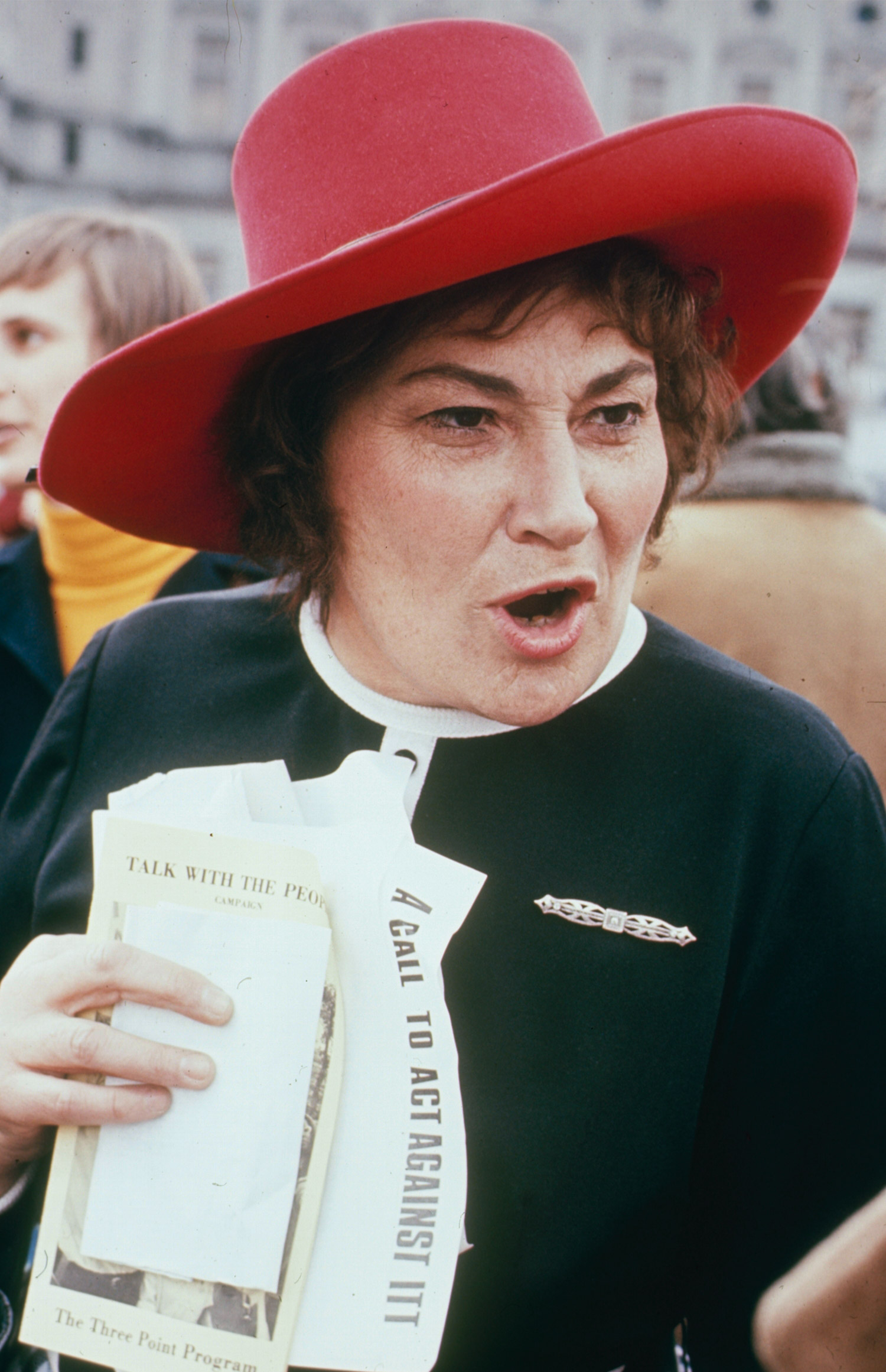
Daughter to Russian Jewish immigrants, Abzug was a lawyer specializing in labor and civil rights in 1950s and ’60s New York. With the start of the Vietnam War she became a vocal member of the anti-war movement. Once elected to Congress, in 1971 she took a “people’s oath” (administered by her fellow New Yorker, Shirley Chisholm) on the steps of the House after taking the official congressional oath of office. Known for her brash personality, she pushed for an end to the war, women’s rights and the needs of underdogs. She was known for saying “This woman’s place is in the House—the House of Representatives.”
Abigail Adams (1744-1818)
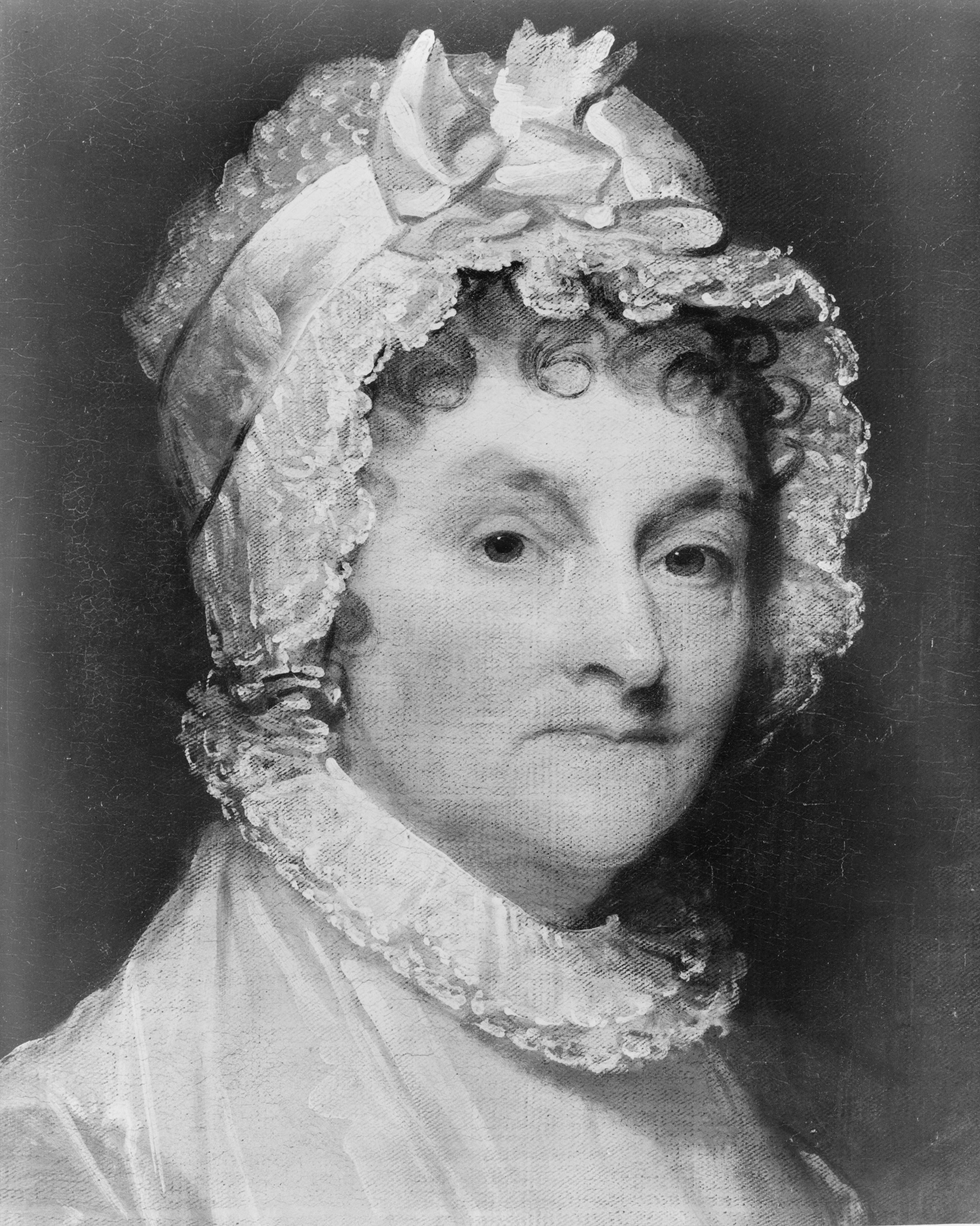
As wife to President John Adams, and her husband’s confidante and adviser, she opposed slavery and pushed for women’s rights and education. Her famous line “remember the ladies” was followed by urging her husband not to “put such unlimited power into the hands of the husbands. Remember all men would be tyrants if they could.” While her husband traveled on revolutionary and political duties, she took over and managed the family farm and business affairs. She was also mother to another President, John Quincy Adams, though she died before he attained the office.
Julia C. Addington (1829-1875)
Julia Addington became the first woman elected to public office in Iowa in 1869 when she became the Superintendent of Schools in Mitchell County—which, though records from the time may be incomplete, likely makes her the first woman ever elected to office in the U.S. When some challenged the legitimacy of her election because she was a woman, the state Attorney General ruled that she was allowed to continue in her role, setting an important precedent.
Madeleine Albright (1937- )
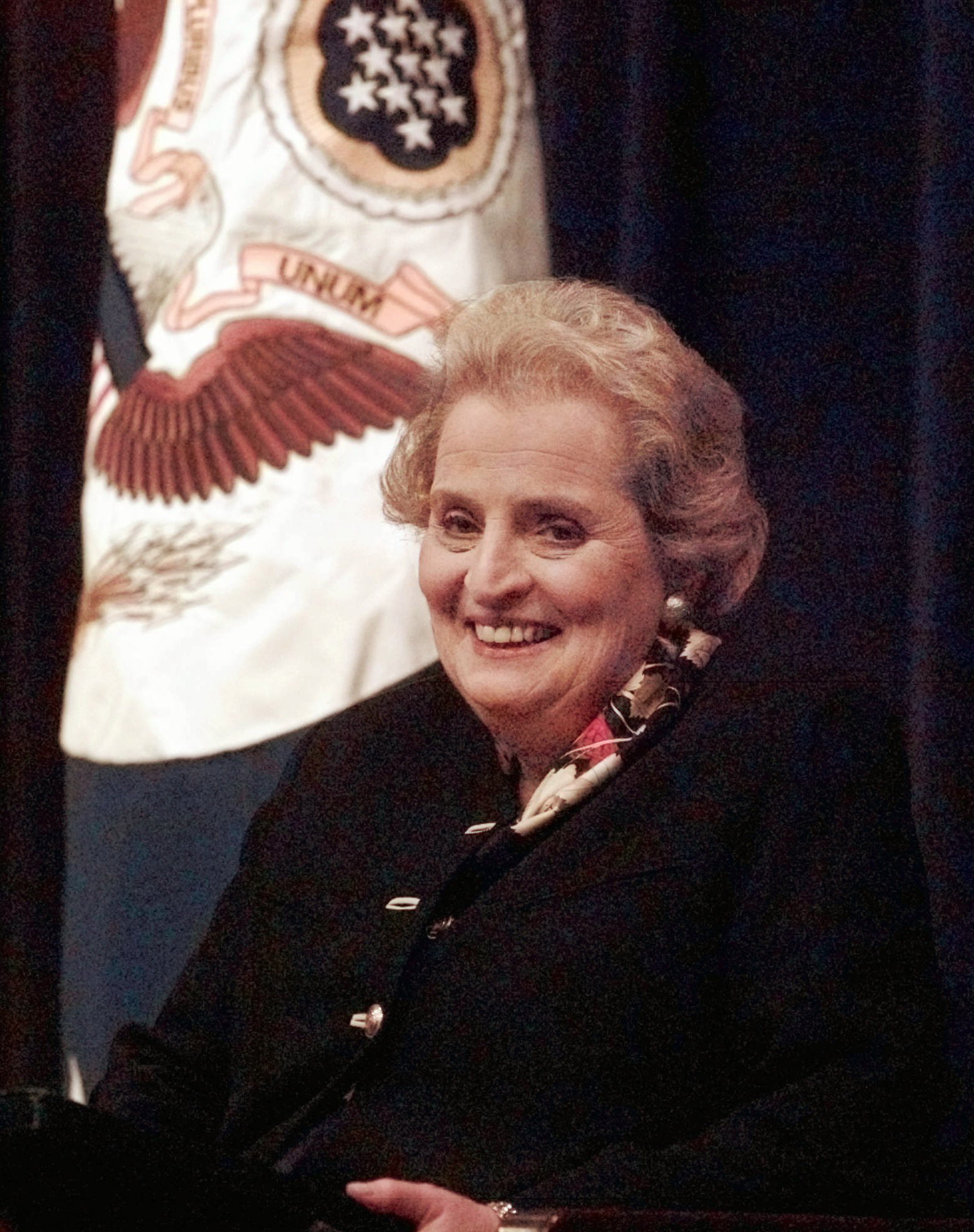
In 1997, she became the first woman to be Secretary of State, and the highest-ranking woman ever in the U.S. Government. She knew the importance of that work: her Czech parents fled Nazi Germany in 1939, and she became a naturalized citizen while in college, but, having been raised Catholic, it was only as an adult that she learned her family was Jewish and that many relatives had died in the Holocaust. She used her position to advocate for human rights, push NATO to intervene in Kosovo in 1999 and normalize U.S. relations with China and Vietnam, and became the first Secretary of State to travel to North Korea.
Cora Belle Reynolds Anderson (1882-1950)
Anderson, a Michigan state legislator in 1925 and ’26, was the first Native American woman elected to a state legislature. (She was from the La Pointe band of the Chippewa tribe, also known as the Ojibwe.) She focused on issues of public welfare and public health, including supporting prohibition and combating tuberculosis. She had previously been a teacher, studying at the Haskell Institute in Lawrence, Kans., before returning to Michigan.
Tammy Baldwin (1962-)
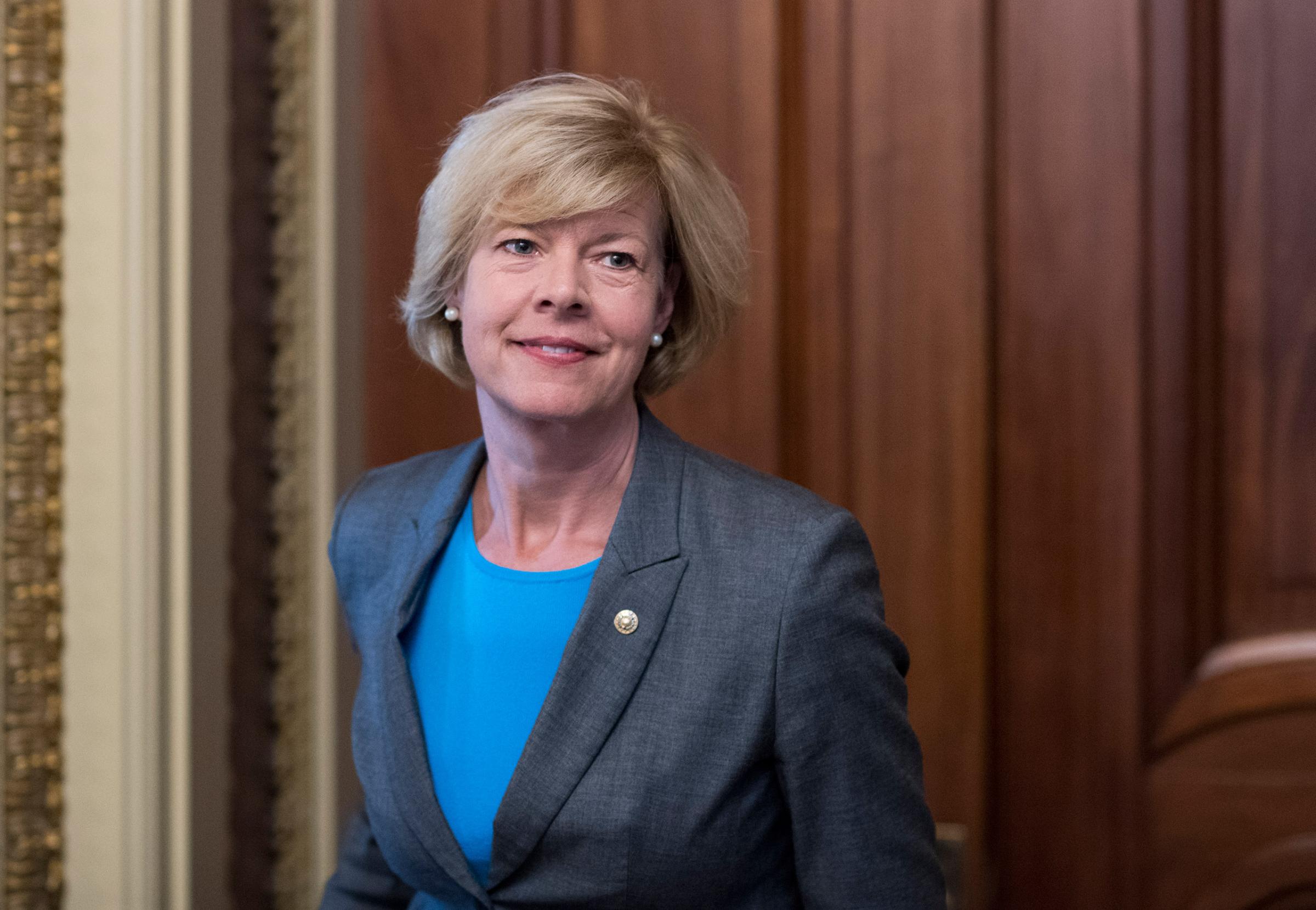
Tammy Baldwin, a junior Senator from Wisconsin, is the first openly gay person elected a U.S. Senator and the first woman in the senate from Wisconsin. The progressive Democratic congressperson had previously served in the House of Representatives from 1999 to 2013. In office, she has advocated for health care reform and sponsored action related to women’s rights, such as the National Breast and Cervical Cancer Early Detection Program Reauthorization Act of 2007. She serves on several subcommittees for the Senate Committee on Appropriations, including for the Department of Defense and Department of Homeland Security.
Mary McLeod Bethune (1875-1955)
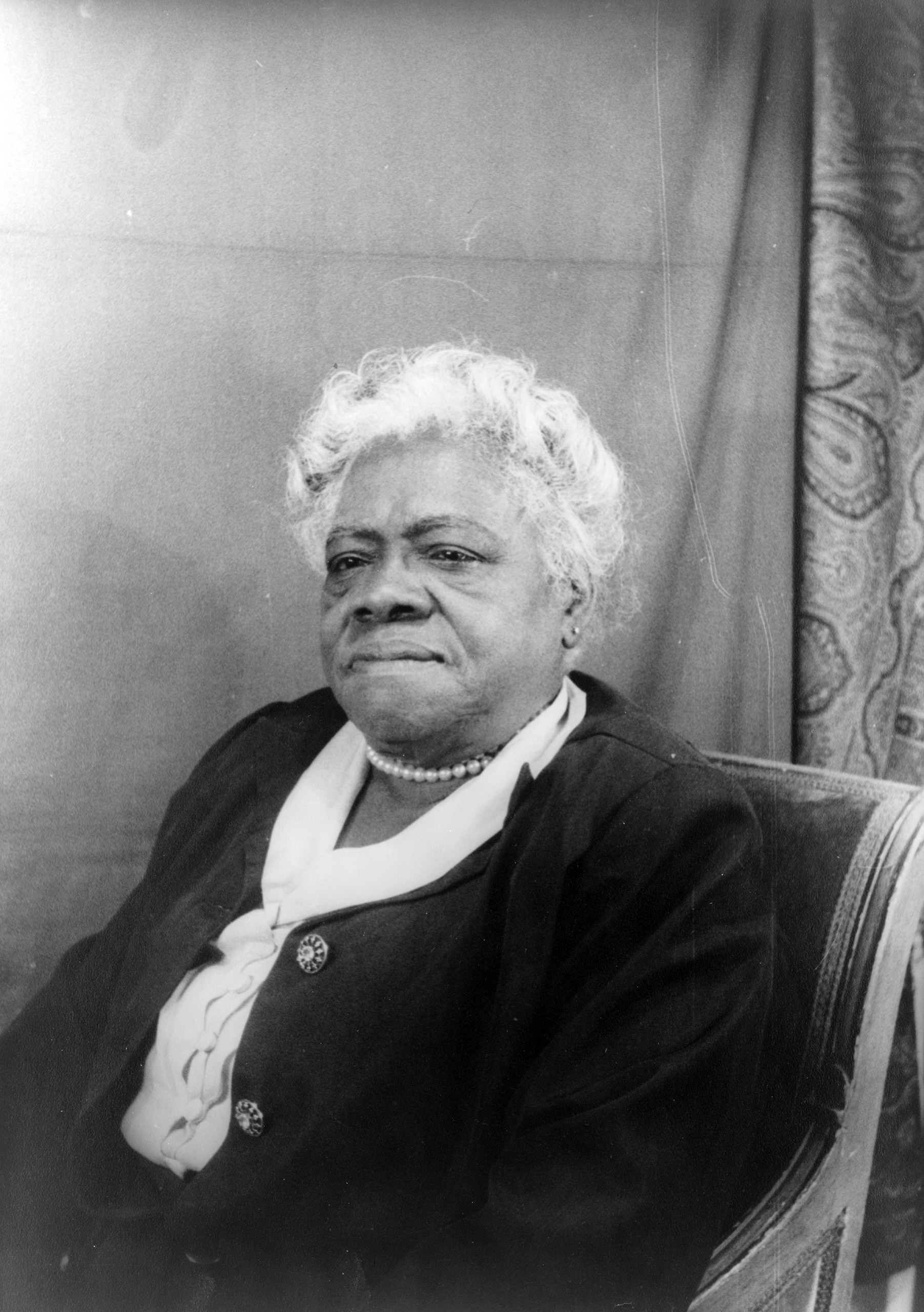
As Director of Negro Affairs of the National Youth Administration from 1936-1944, she also advised President Franklin Delano Roosevelt on minority affairs and interracial relations, advocating for blacks to be served by New Deal policies, and was the head of FDR’s “Black Cabinet”—an unofficial but important role. The Women’s Army Corps was integrated because of her work as a member of the advisory board. The daughter of former slaves, Bethune thought education was key to racial equality, and started a school in Daytona Beach, Fla., which later became one of the few colleges of its time open to black students. Bethune founded the National Council of Negro Women in 1935 and served as vice president of the NAACP from 1940 until her death in 1955.
Barbara Boxer (1940- )
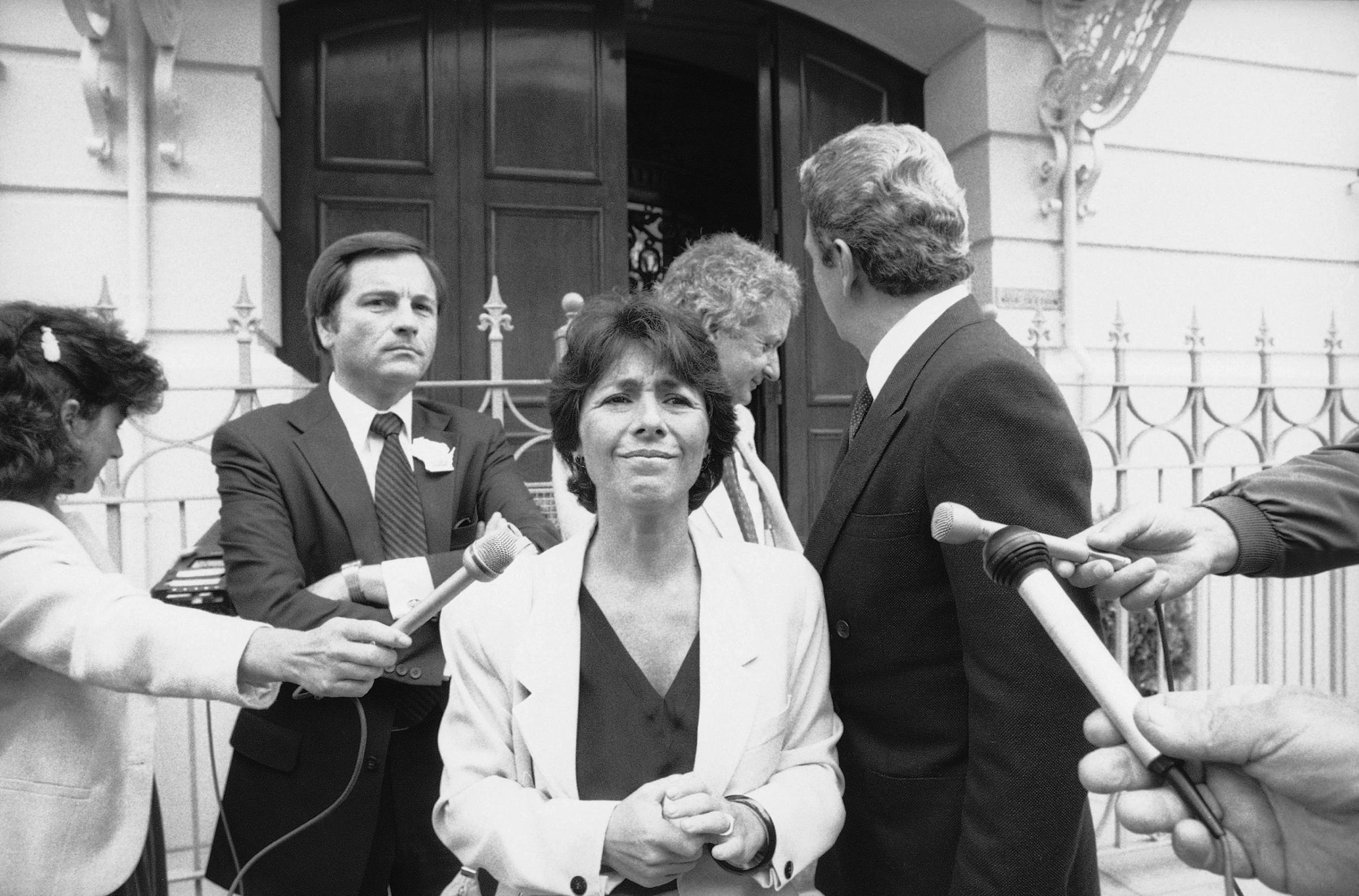
California Senator Barbara Boxer retired from her position in 2017 after serving as California’s junior senator since 1993. During her time in office, Boxer championed efforts to improve medical research and improve health care, sponsored legislation protecting the environment and wrote the 2004 Freedom of Choice Act, which would have prohibited government from interfering with a woman’s right to abortion. She was the ranking member of the Environment and Public Works Committee, and has said she is planning to work now to help get more Democrats elected.
Carol Moseley Braun (1947- )
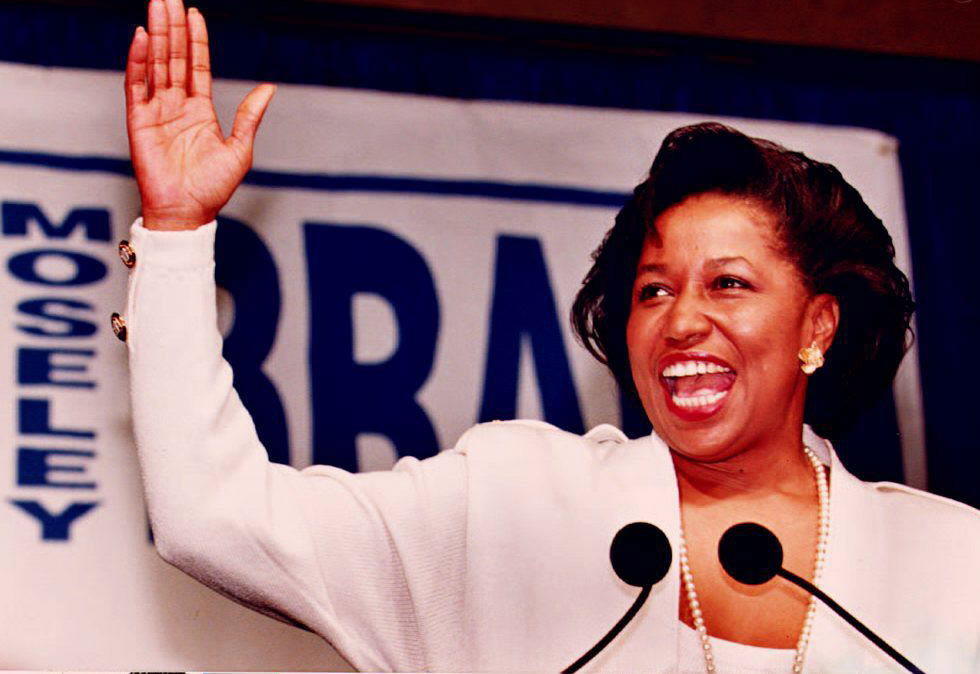
Braun was one of the “year of the woman” candidates in 1992 who decided to run for higher office after Anita Hill’s testimony during Clarence Thomas’ confirmation hearings. She became the first woman of color elected to the U.S. Senate, representing Illinois from 1993 through 1999. Once elected to the Senate, she worked to advance women’s rights, civil rights, gun control and more, including the historic preservation of Underground Railroad sites. In 1993, she convinced the judiciary committee not to renew a design patent for the United Daughters of the Confederacy as it included the Confederate flag.
Hattie Wyatt Caraway (1878-1950)
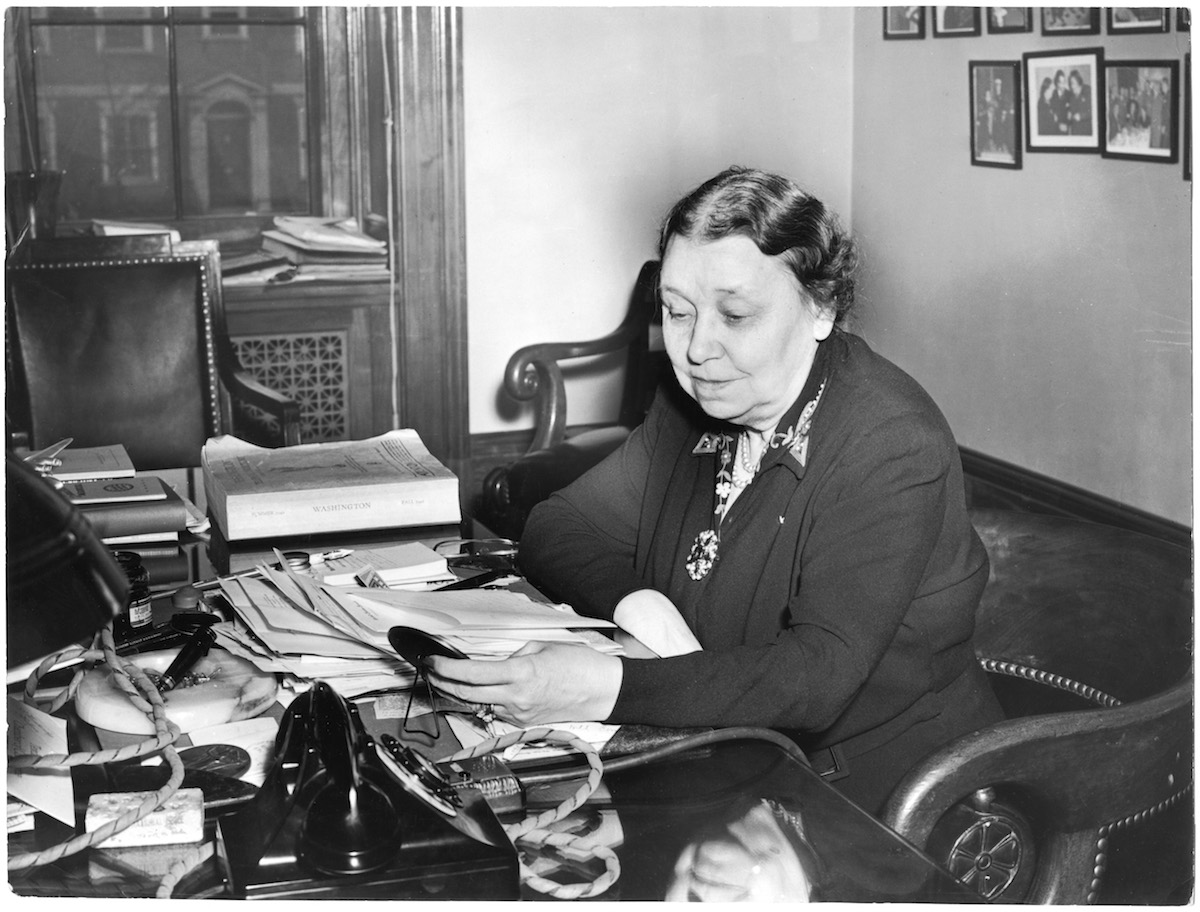
Appointed to fill her husband Thaddeus Horatio Caraway’s U.S. Senate seat after his sudden death on Nov. 6, 1931, the Arkansas Democrat ran for the seat on her own in 1932 and thus became the first woman elected to the upper chamber of Congress. (Rebecca Latimer Felton had been officially the first woman in the Senate, but she served by appointment and only for a single day in 1922.) The prohibitionist earned the nickname “Silent Hattie” because she only spoke 15 times in the 14 years that she served, but quietly voted for important measures like President Franklin Delano Roosevelt’s New Deal reforms, U.S. entry into World War II after the Pearl Harbor attack and the first federal loan funding for a state college. Though she paved the way for women in the chamber, she was less progressive on the broader civil-rights front; while she was the first woman to endorse and vote for the Lucretia Mott Equal Rights Amendment, she voted most of the time with the larger block of Southern Senators, against an anti-lynching bill and a poll tax ban.
Elaine Chao (1953- )
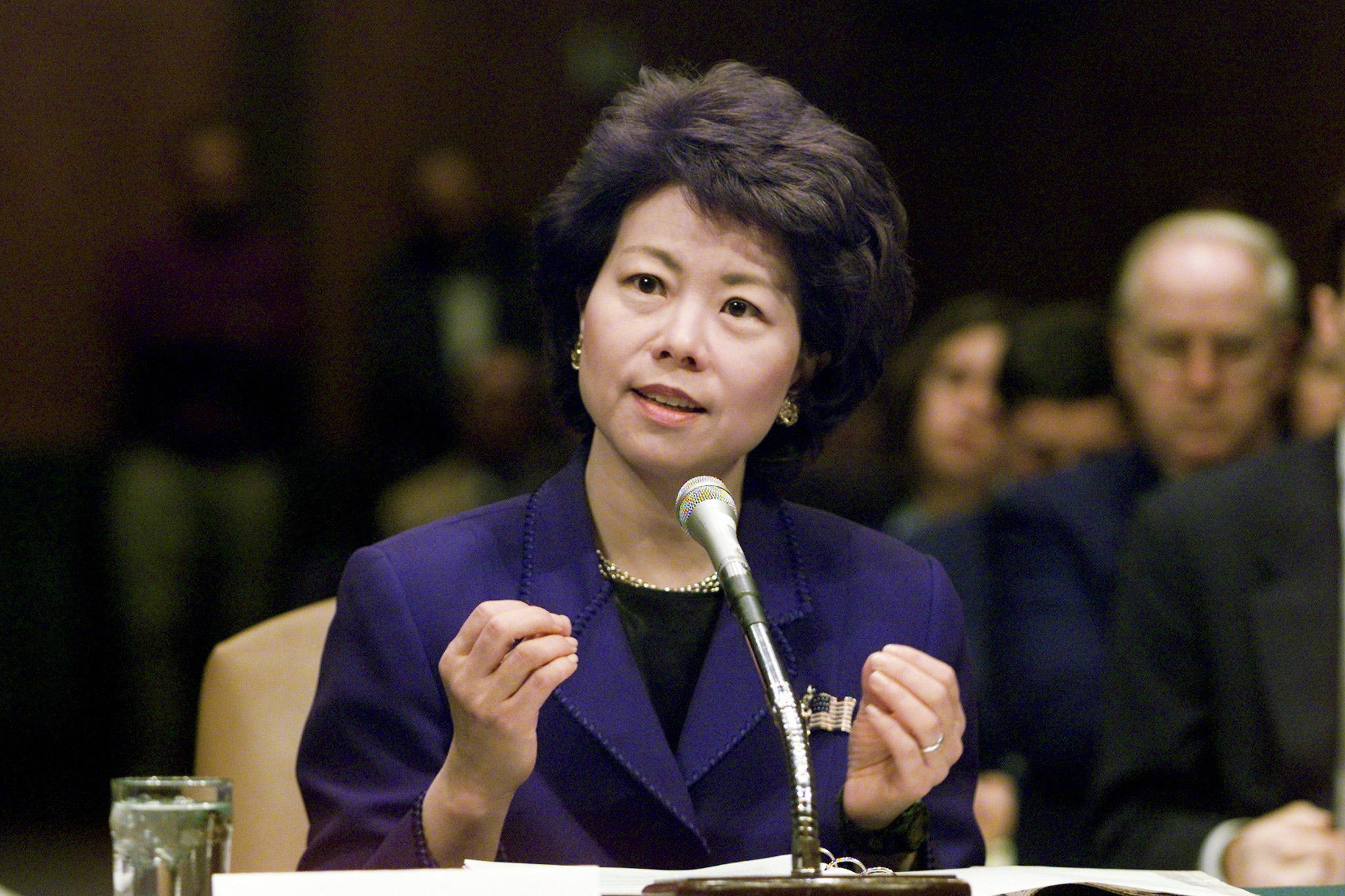
Chao became the first Asian-American woman to serve in a presidential cabinet when President George W. Bush appointed her Secretary of Labor in 2001. In the eight years she held the position, Chao aimed to improve overtime regulations for workers and worked for more secure regulations for unions and workers’ retirements. In January, she was confirmed as the Secretary of Transportation in a 93-6 vote.
Shirley Chisholm (1924-2005)
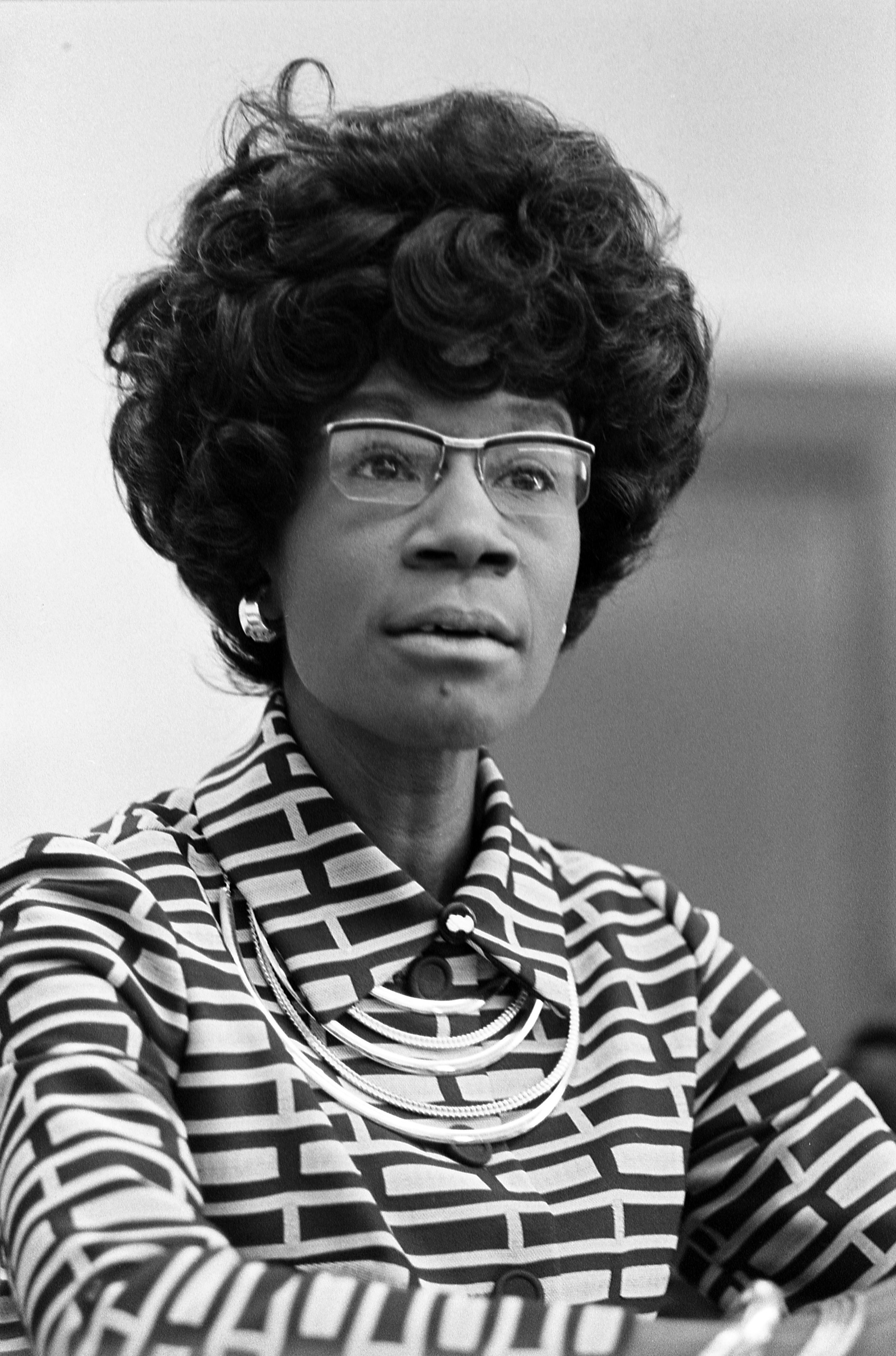
With a Masters in early childhood education from Columbia University, Chisholm was steadfast in advocating liberal causes—her campaign motto was “unbought and unbossed.” As the first African-American woman elected to Congress, she represented a overwhelmingly Democratic constituency in a newly redistricted Brooklyn neighborhood and in 1971 was a founding member of the Congressional Black Caucus. The following year she ran a historic campaign for the Presidential nomination (“I ran because somebody had to do it first”), and helped create the Congressional Women’s Caucus in 1977. While in Congress, she championed her district’s interests, from daycare-funding to minimum wages for domestic workers, and criticized Congress for being run by “a small group of old men.”
Hillary Clinton (1947- )
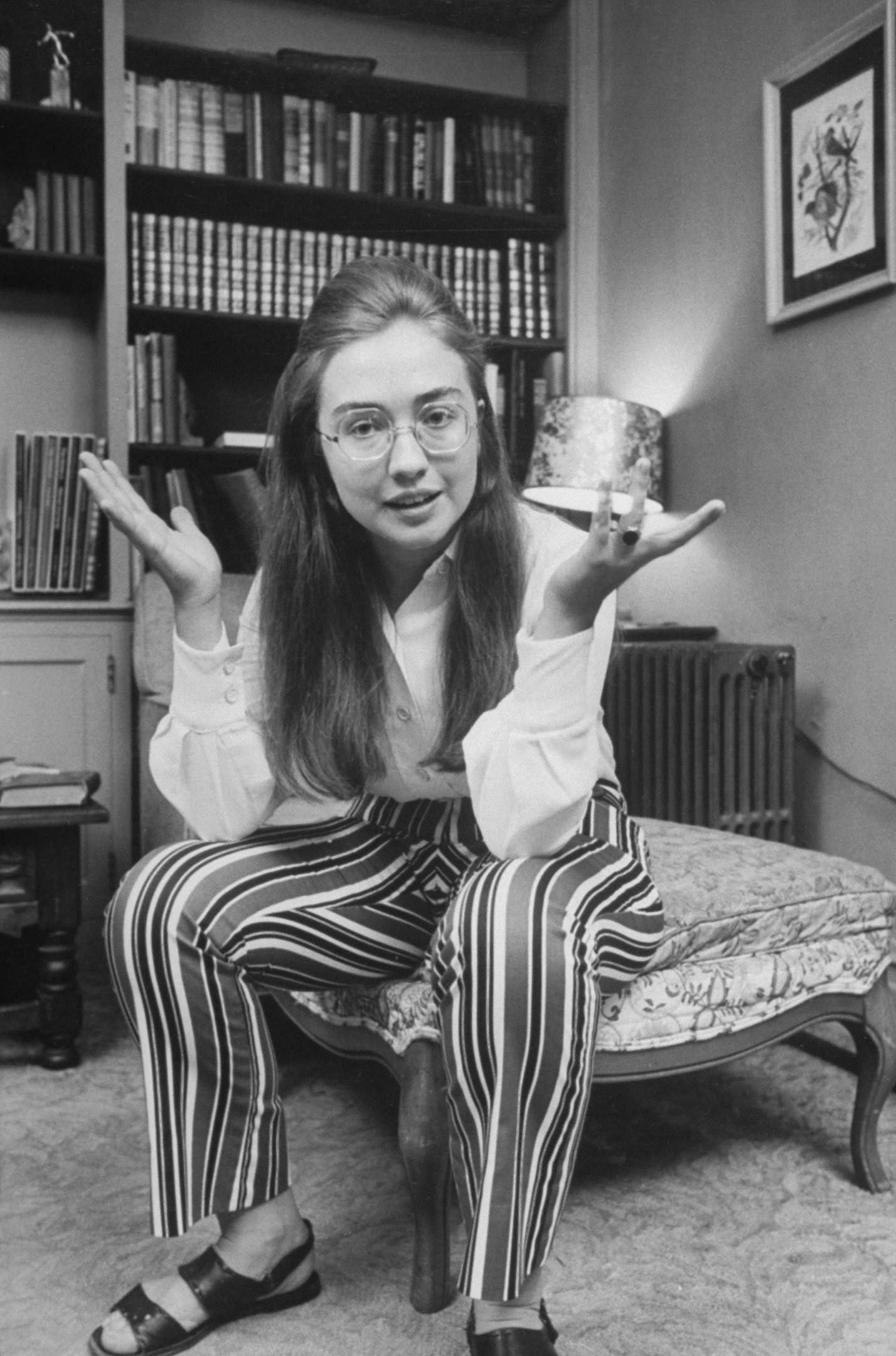
In 2016, she was the first woman nominated by a major party for President of the United States. A lawyer by training, during her husband Bill Clinton’s time as President, she was the first First Lady to have an office in the West Wing, and while the healthcare reform plan she spearheaded during that time failed to pass, she successfully worked with members of Congress on the creation of Children’s Health Insurance Program. Prior to her unsuccessful run for the White House, she was also the first woman to serve as a U.S. Senator from New York (2001-2009) and served as Secretary of State (2009-2013) in the Obama administration.
Tammy Duckworth (1968- )

Tammy Duckworth, previously a member of the U.S. House of Representatives from Illinois, came to the Senate recently after beating the state’s incumbent Senator, Republican Mark Kirk, in 2016. She served as an Army helicopter pilot during the Iraq war, where she lost her legs and injured her arm. As a member of Congress, she has parlayed her personal experience in advocacy for veterans, by working on programs to help with P.T.S.D. and homelessness.
Dianne Feinstein (1933- )
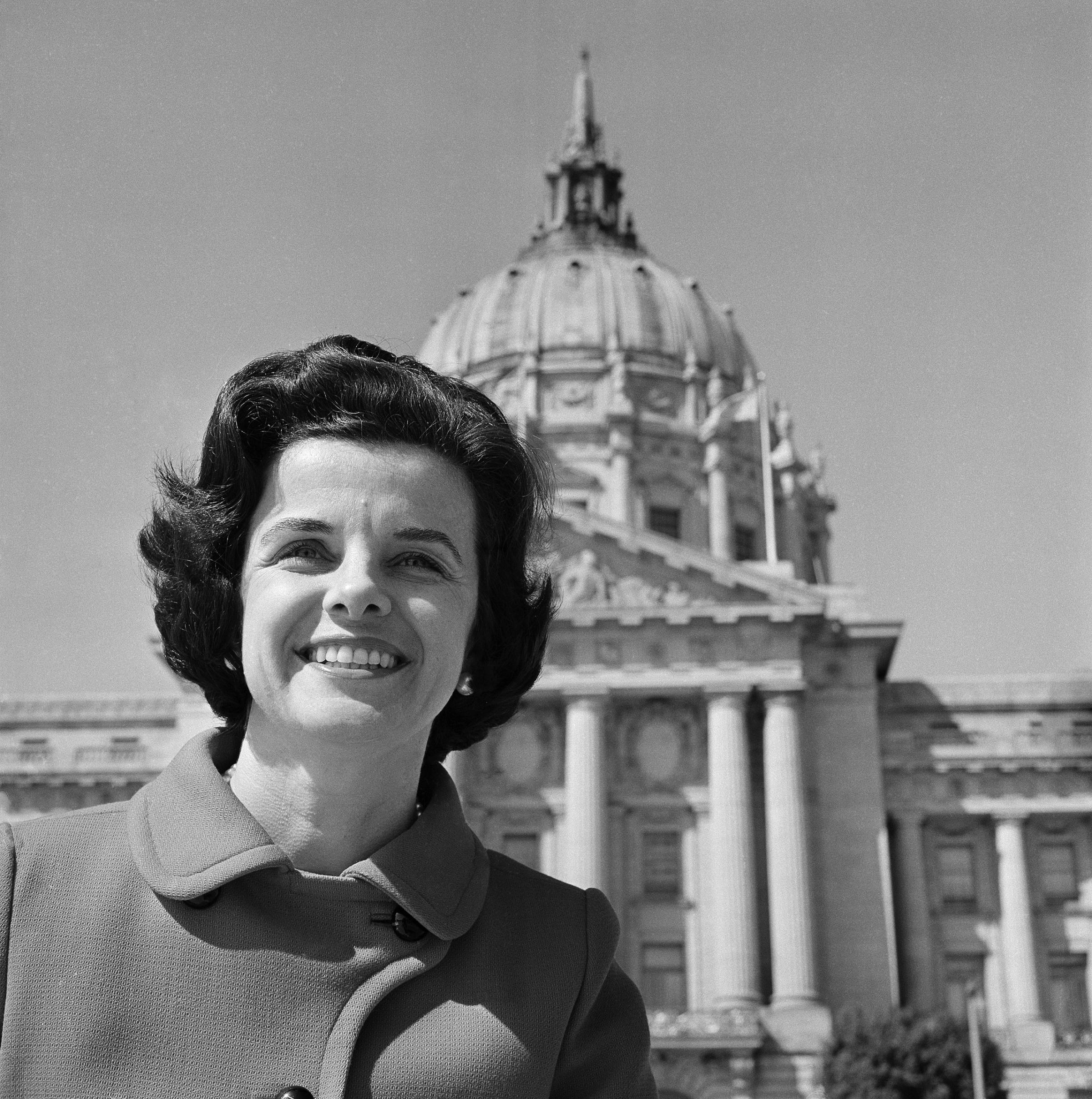
A California Senator since 1992, Feinstein is known for standing up for people (and to people). During her quarter-century in the Senate, she’s helped create AMBER alerts and the assault weapons ban that expired in 2004, and she was the first woman to chair the Senate Select Committee on Intelligence. In 1978, she became the first woman to be mayor of San Francisco when she came into the position, from her role as president of the Board of Supervisors, following the assassination of then-mayor George Moscone and City Supervisor Harvey Milk.
Geraldine Ferraro (1935-2011)
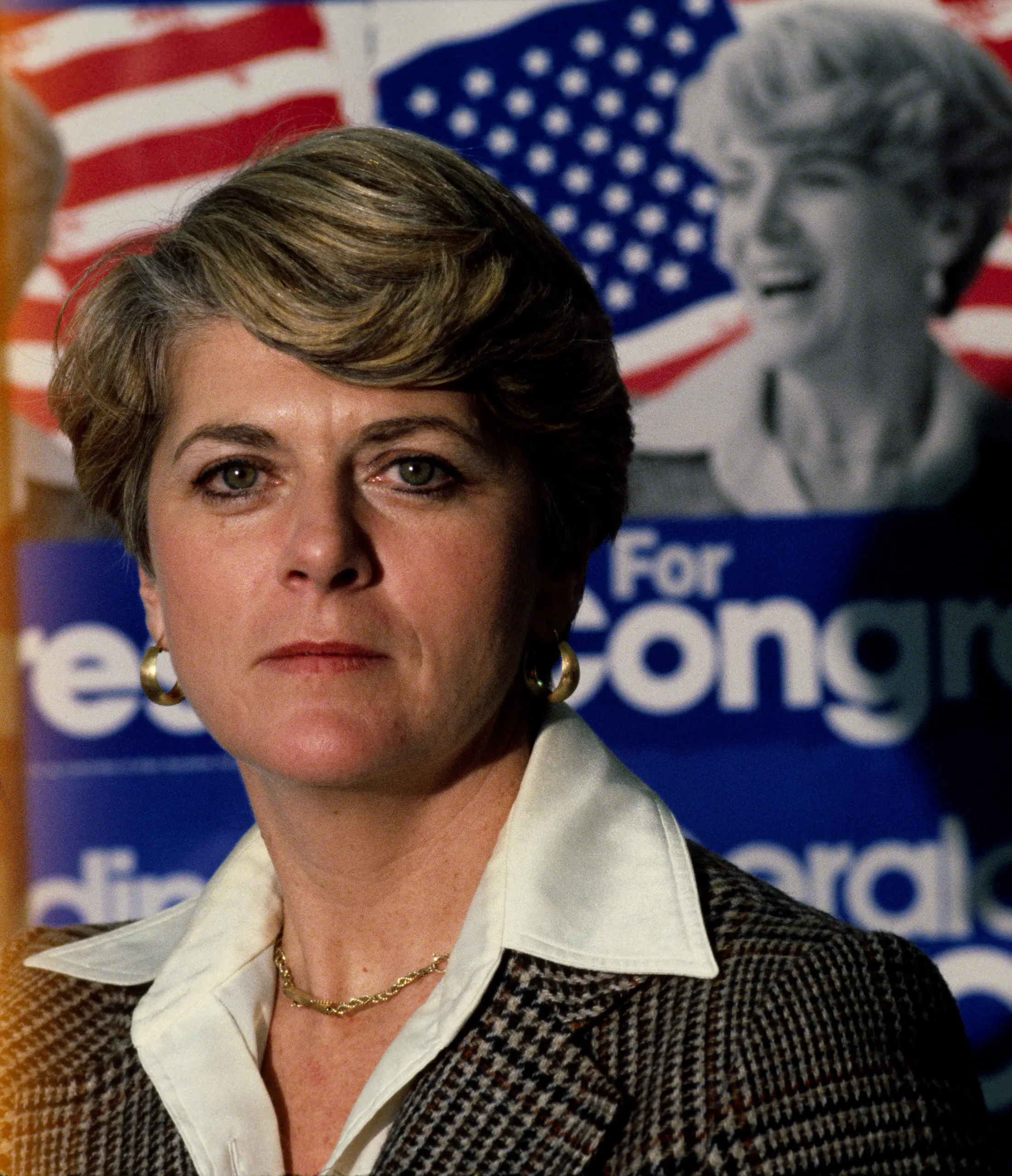
The Queens congresswoman (1979-1985), who once sat on the prestigious House Budget Committee, was the first woman to chair the Democratic platform committee and became the first woman vice-presidential candidate for a major party when Walter Mondale picked her to be his running mate in 1984. They lost to Ronald Reagan. Questions about her personal finances and that of her husband would thwart future U.S. Senate runs.
Barbara Franklin (1940–)
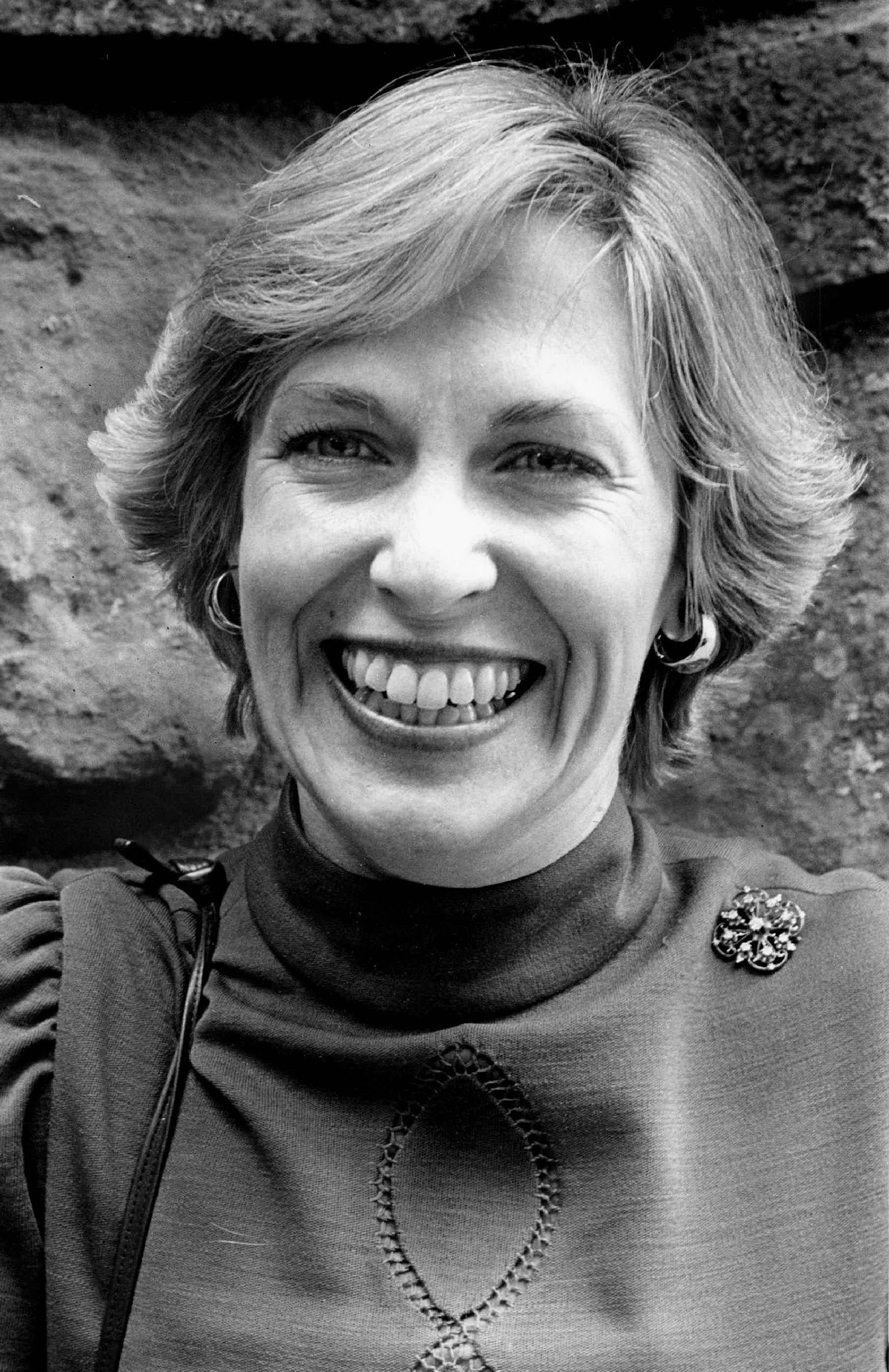
Her position as Secretary of Commerce for George H.W. Bush wasn’t the first time Franklin had worked in the White House; in the early 1970s she recruited women for high-level jobs as a staff assistant to President Richard Nixon. Next she was appointed to the new Consumer Product Safety Commission and spent six years there, overseeing changes like the first child-resistant caps for pill bottles and safety changes to children’s furniture and toys. As Secretary of Commerce she increased exports and pushed market-opening initiatives to normalize commercial relations in Russia, Japan, Mexico and China.
Gabrielle Giffords (1970- )
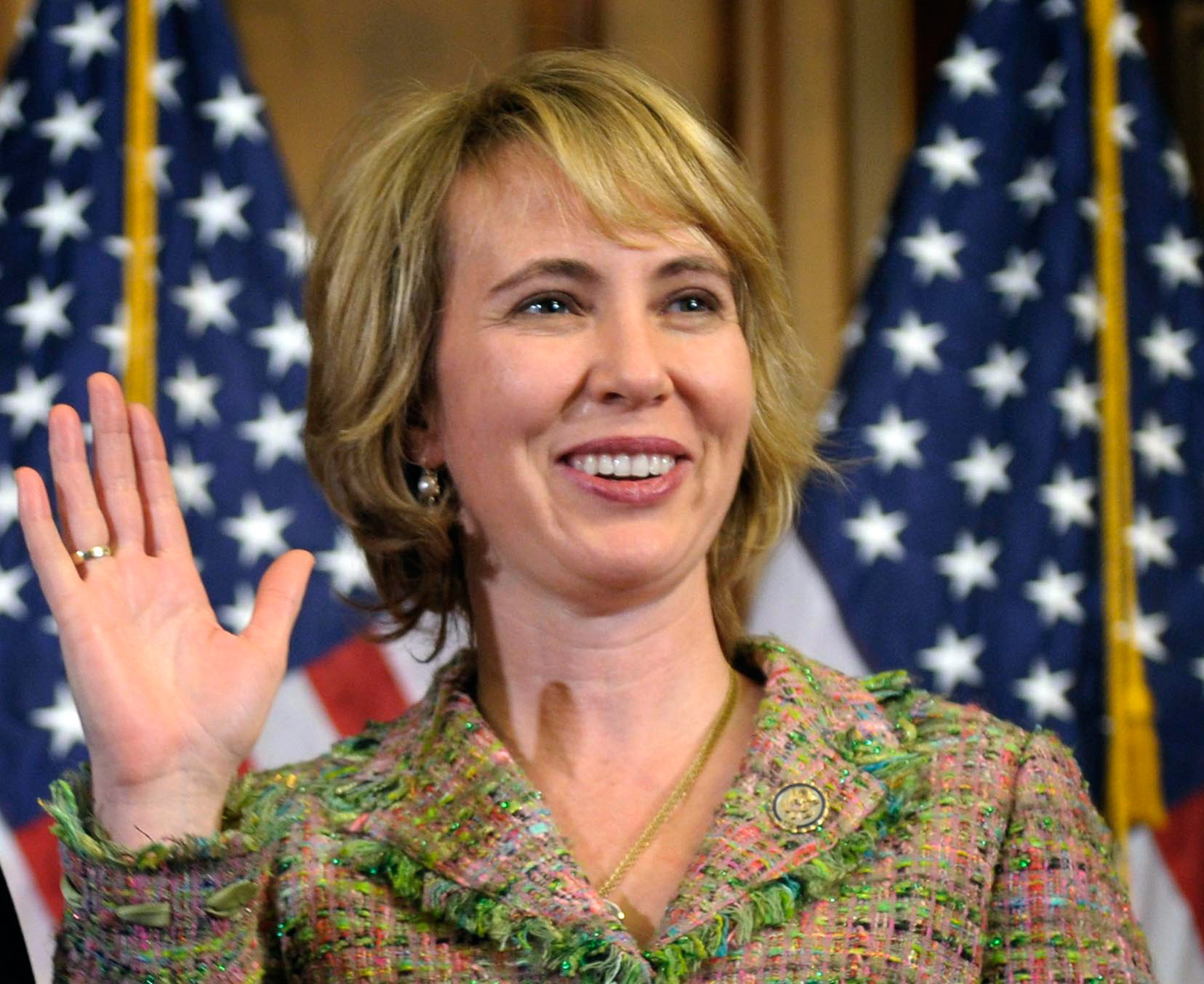
Gabby Giffords was a U.S. Representative from Arizona until she resigned in 2012 after incurring a severe brain injury during an attempted assassination. She was a contentious figure in her state for her support of health care reform and her stance on illegal immigration. Since the shooting, Giffords has become one of the nation’s most visible advocates for gun control.
Ruth Bader Ginsburg (1933- )
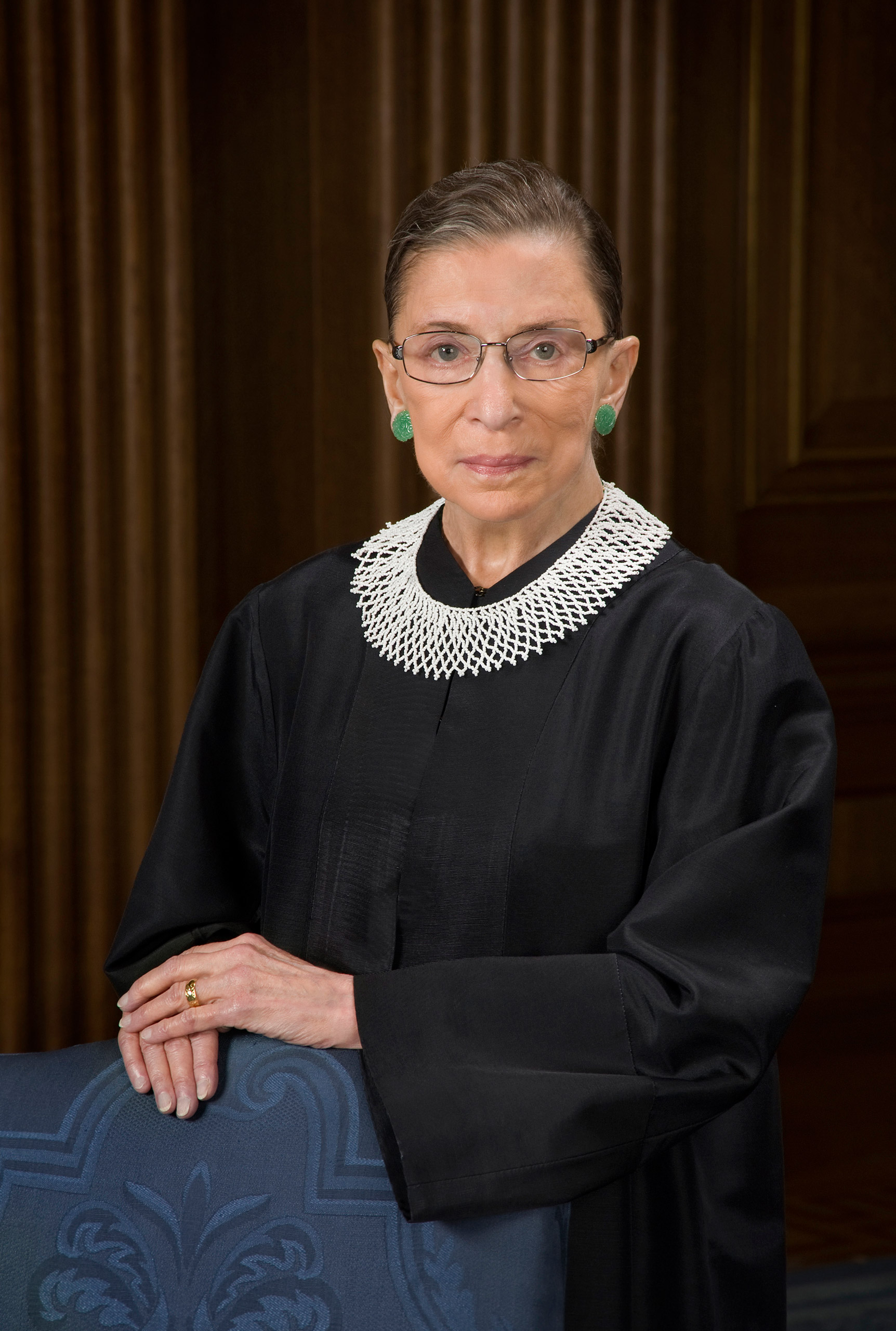
Nominated to the Supreme Court by President Bill Clinton in 1993, from a previous position as a United States Court of Appeals District of Columbia Circuit judge, this Brooklyn opera buff boasts many firsts: first woman to serve on two major law reviews (Harvard Law Review and Columbia Law Review), first tenured female Columbia Law School professor and co-author of the first casebook on sex discrimination. She’s known for her opinions on gender equality, notably the landmark United States v. Virginia, which allowed women to attend Virginia Military Institute.
Ella T. Grasso (1919-1981)
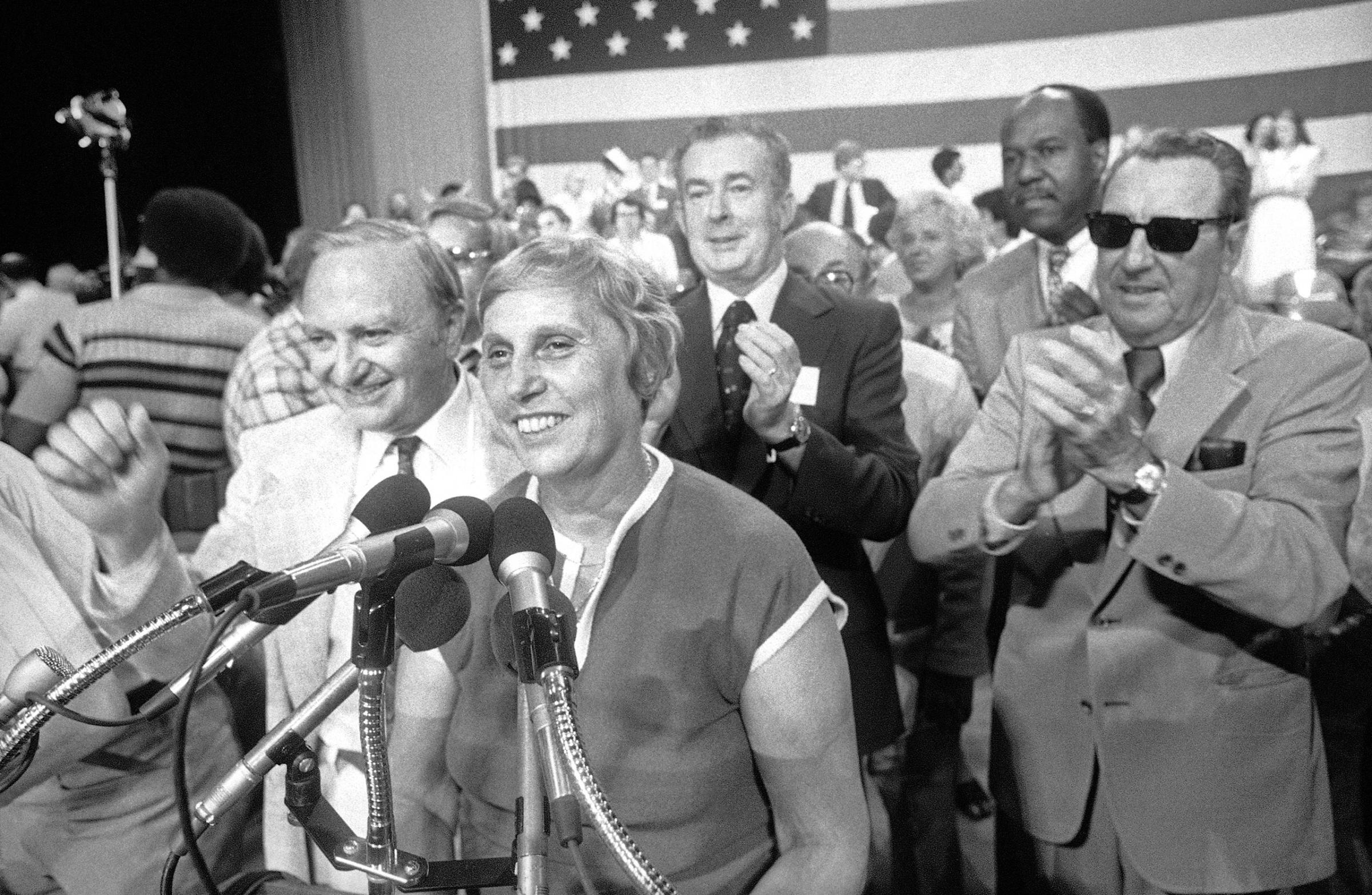
Ella T. Grasso was the governor of Connecticut from 1975 to 1980, and the country’s first female governor who had not been married to a previous governor. Grasso notably shut down all roads and businesses in Connecticut during a terrible snowstorm in 1978 and was lauded for her cool head in an emergency situation. Before being elected governor, Grasso had previously served as a member of the U.S. and state Houses of Representatives.
Martha W. Griffiths (1912-2003)
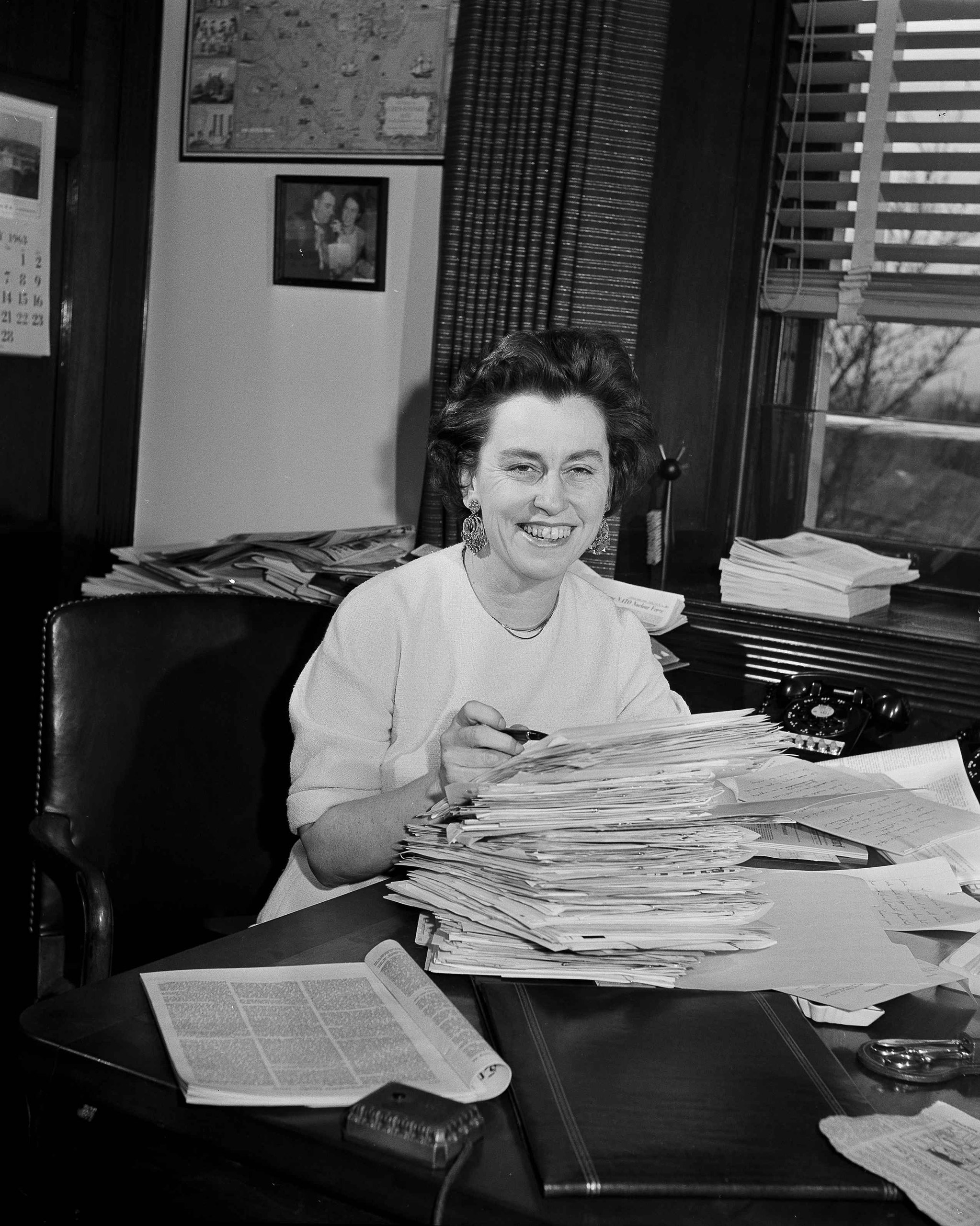
As a congresswoman from Michigan, serving from 1955 to 1974, she successfully fought to have women included in the protections of the Civil Rights Act of 1964. She later filed a discharge petition in 1970 to get the Equal Rights Act out of committee, where it had been held up almost every year since it was first introduced in 1923, and to a vote. (Although it was passed by both the Senate and House, it failed to be ratified by a sufficient number of states before the deadline.) After she decided to leave Congress, she served two terms as Michigan’s lieutenant governor.
Fannie Lou Hamer (1917-1977)
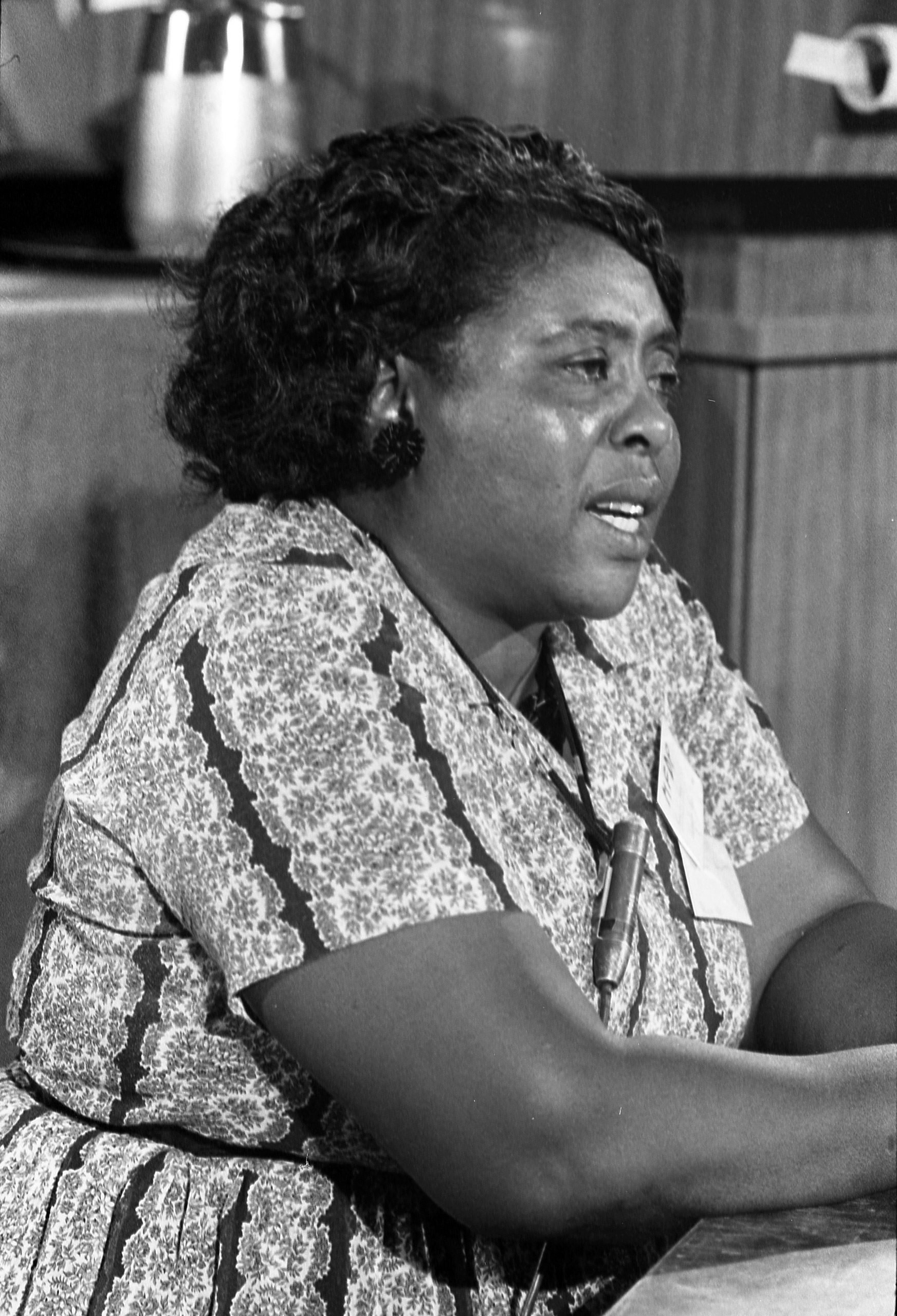
Fannie Lou Hamer fought for civil rights as a leader of the movement and member of the Student Nonviolent Coordinating Committee, and also co-founded the Mississippi Freedom Democratic Party in 1964. She got involved with efforts to register black voters in the South in 1962, and during her time with SNCC took part in peaceful demonstrations that left her exposed to beatings and violence. As the Vice Chair of the Mississippi Freedom Democratic Party, Hamer opposed her state’s all-white delegation at the Democratic Convention in 1964, where her alternative party captured the national spotlight for the civil-rights movement. Hamer unsuccessfully ran for Congress in 1964, but took part in forming the National Women’s Political Caucus in 1971.
Patricia Roberts Harris (1924-1985)
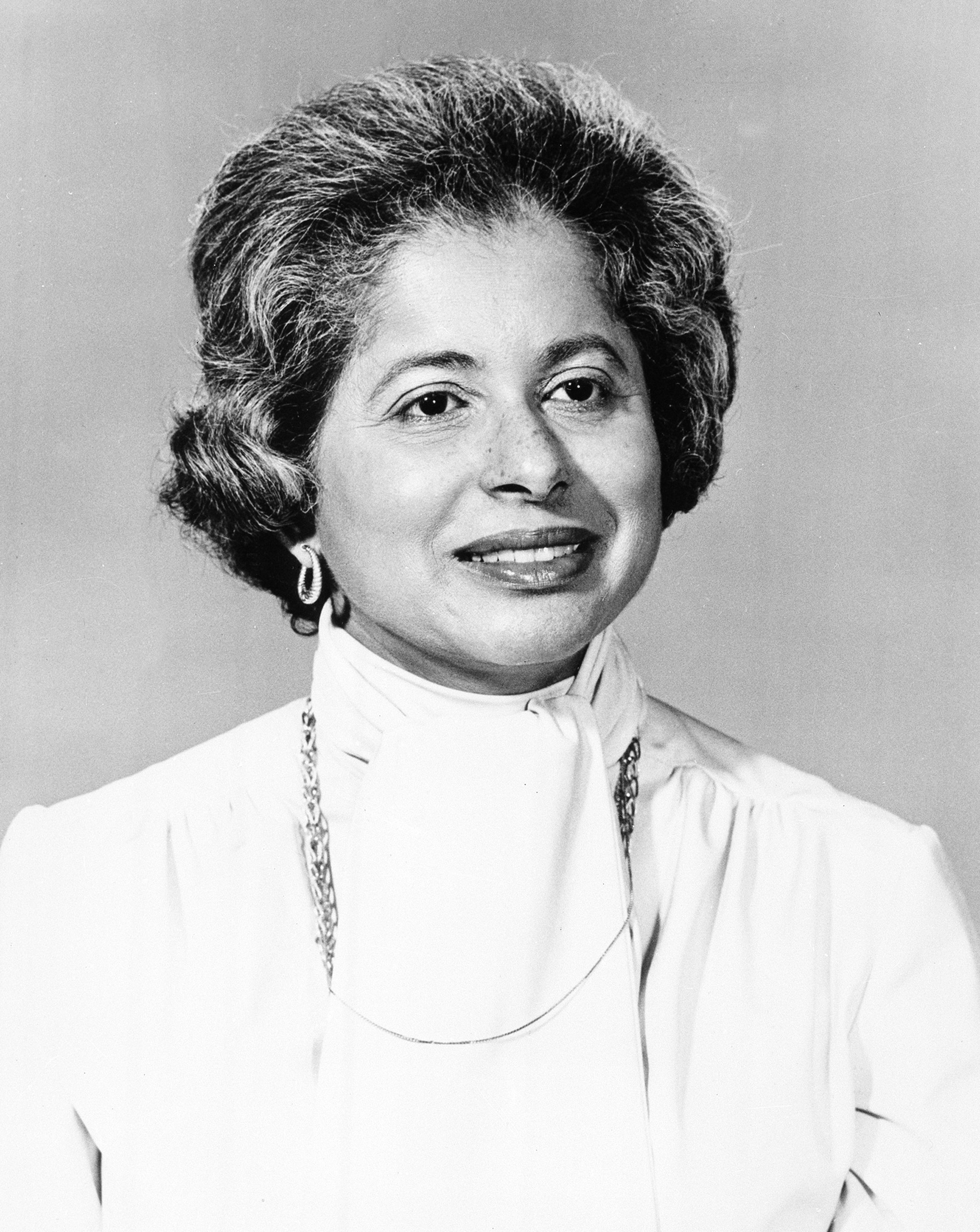
Named Secretary of Housing and Urban Development in 1977, Harris became the first black woman to hold a Cabinet position. At Senate hearings for her appointment, Senators questioned how someone of her elevated position could understand the needs of the people the department of Housing and Urban Development focused on. “Senator, I am one of them,” Harris said. ”You do not understand who I am. I am a black woman, the daughter of a dining car worker. I am a black woman who even eight years ago could not buy a house in parts of the District of Columbia. I didn’t start out as a member of a prestigious law firm, but as a woman who needed a scholarship to go to school. If you think I have forgotten that, you are wrong.” She later served as Secretary of Health, Education and Welfare (1979-1981).
Diane J. Humetewa (1964- )
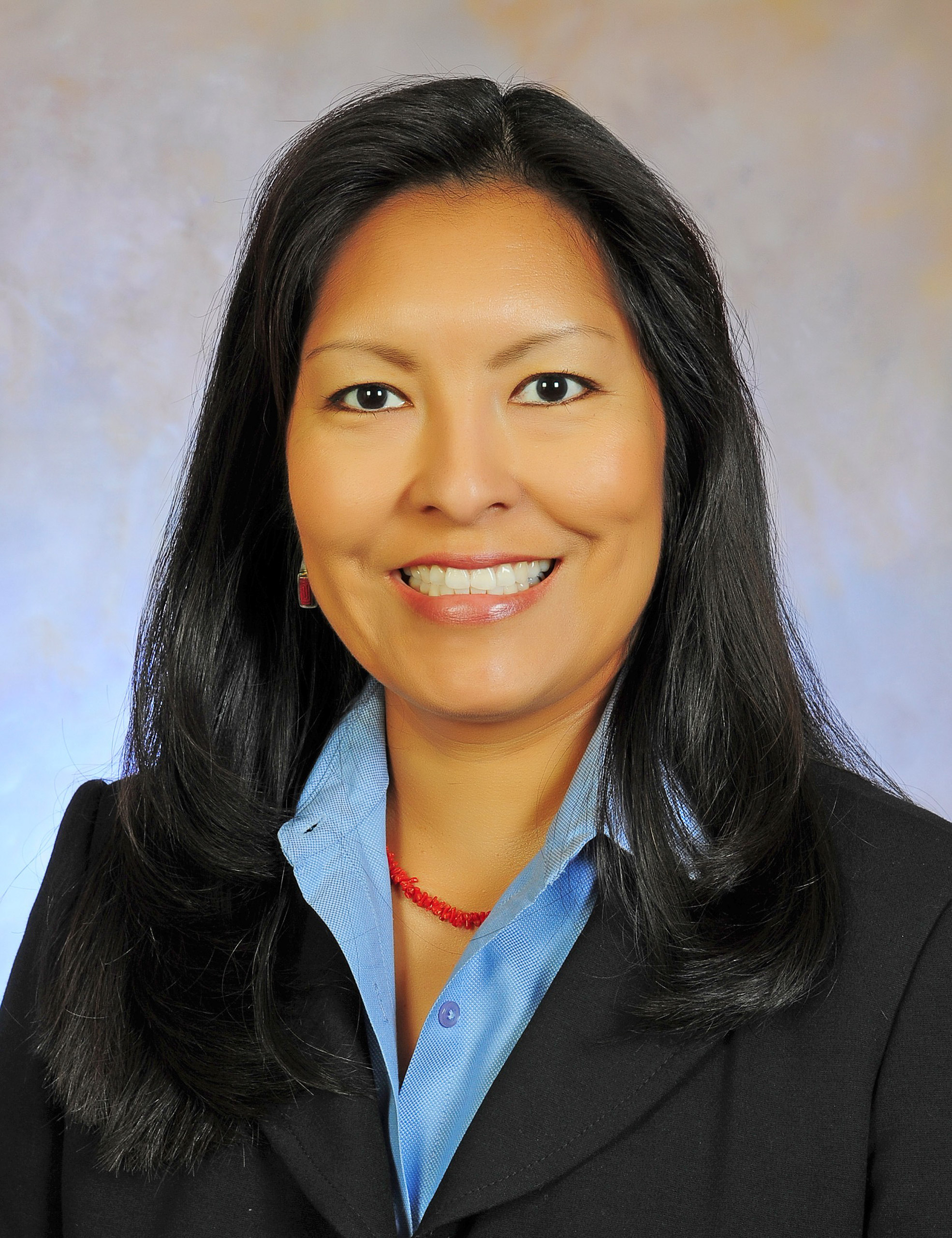
As a federal district judge for Arizona, Humetewa—a member of the Hopi tribe—is the first Native American woman to be a judge at that level, and has dedicated her career to making a difference on Native American legal issues. She was previously a U.S. Attorney for Arizona, professor at Arizona State University College of Law, a judge in the Hopi appellate court, assistant counsel for the Senate Committee on Indian Affairs and—even before she went to law school—a victim-witness advocate at the U.S. Attorney’s office in Arizona.
Barbara Jordan (1936–1996)
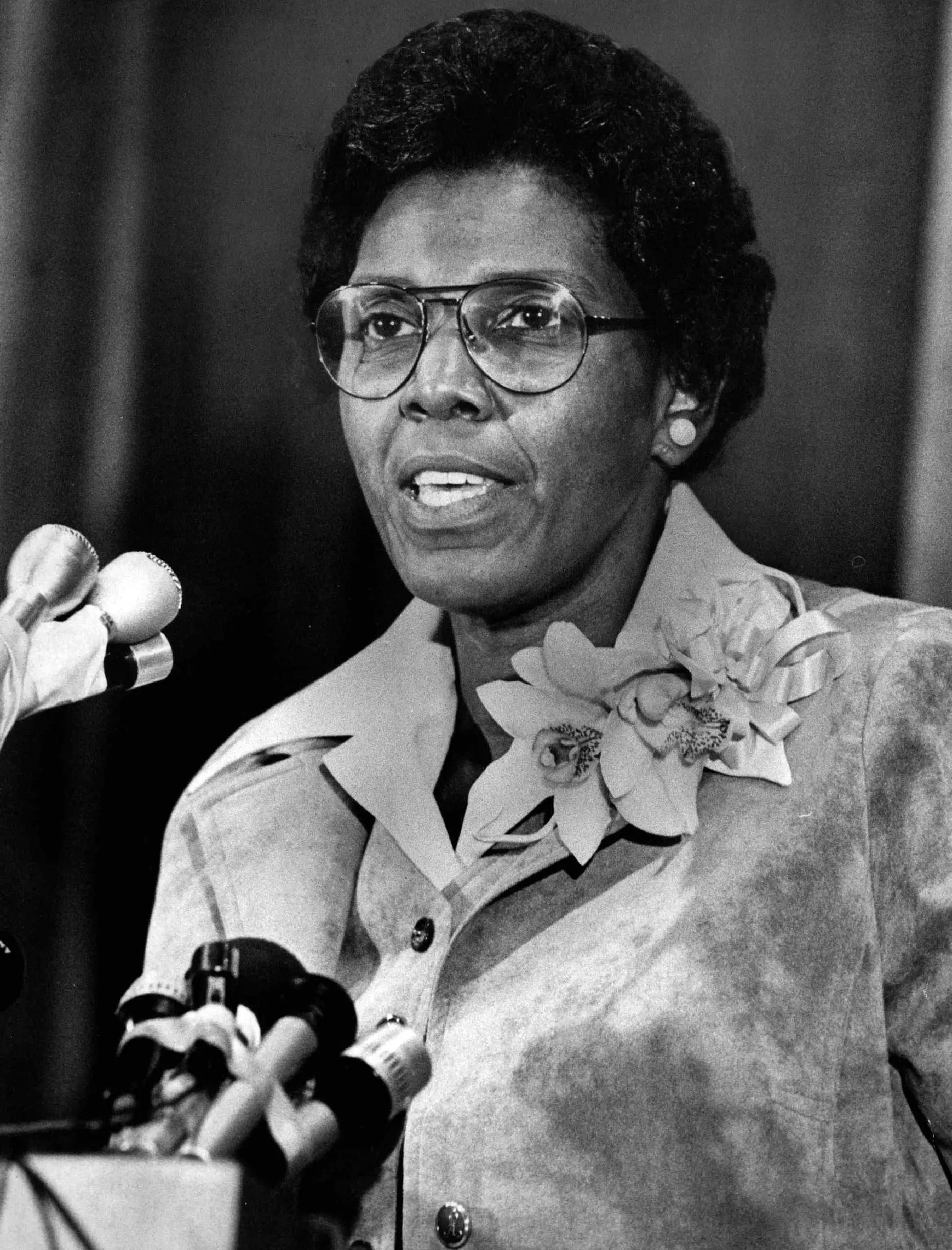
The Texan was the first African-American woman to preside over a legislative body in America when she was elected president pro tempore of the Texas Senate, and went on to serve in the House of Representatives from 1973 to 1979 and become the first African-American keynote speaker at a Democratic National Convention. She became famous during the Watergate scandal when she declared, as a freshman member of the judiciary committee (which was considering articles of impeachment against President Nixon), “My faith in the Constitution is whole, it is complete, it is total. I am not going to sit here and be an idle spectator to the diminution, the subversion, the destruction of the Constitution.” She argued that if her colleagues didn’t consider evidence sufficient, “then perhaps the 18th-century Constitution should be abandoned to a 20th-century paper shredder.”
Elena Kagan (1960- )
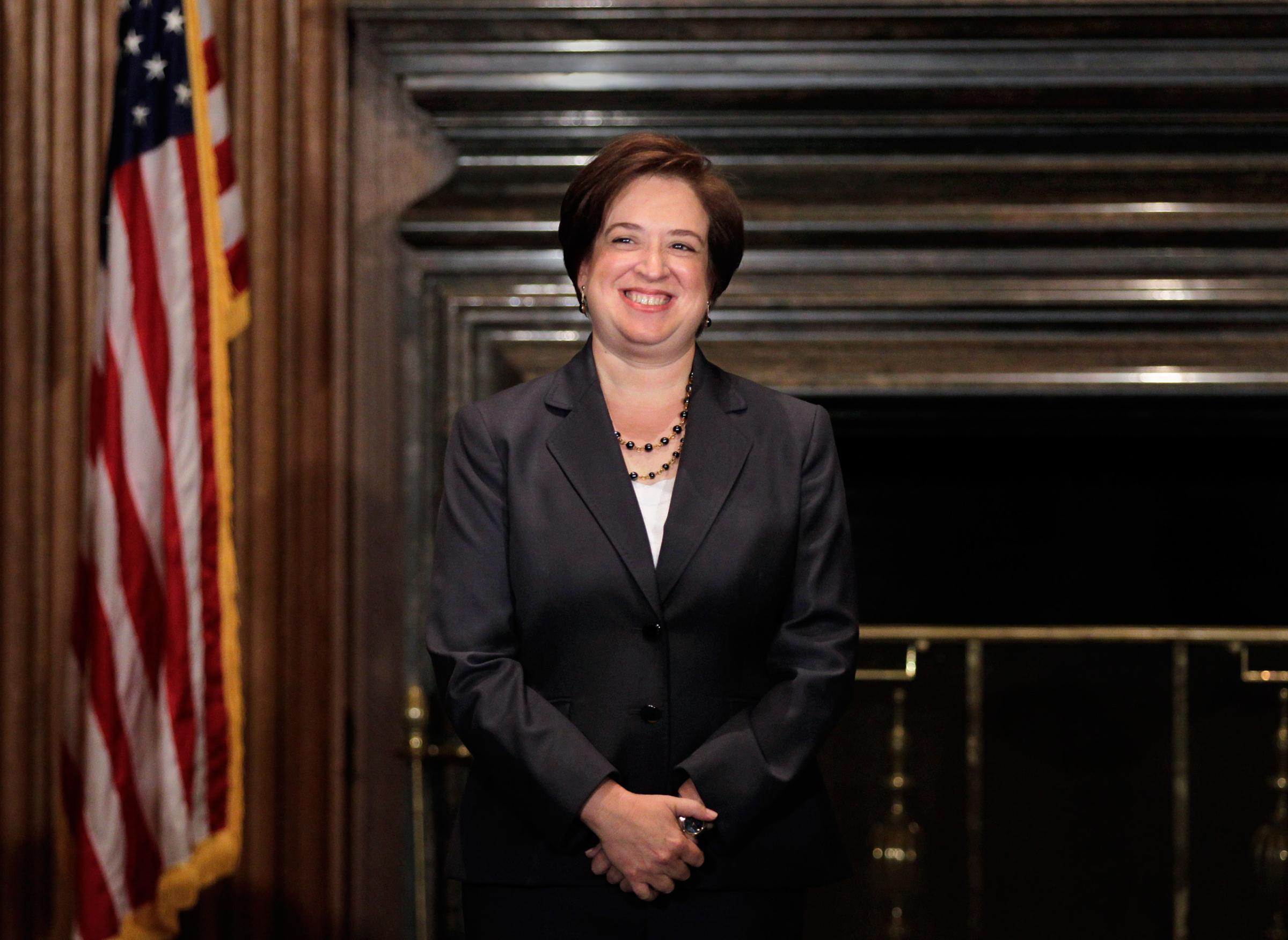
The first woman to serve as U.S. Solicitor General, she was also a law professor, advisor to President Clinton and Dean of Harvard Law School before being appointed to the Supreme Court in 2010. As Dean of Harvard Law School, she was known for building consensus among professors reluctant to collaborate, and as Solicitor General, she was responsible for representing the government before the Supreme Court—beginning with Citizens United v. Federal Election Commission.
Ellen Malcolm (1947- )
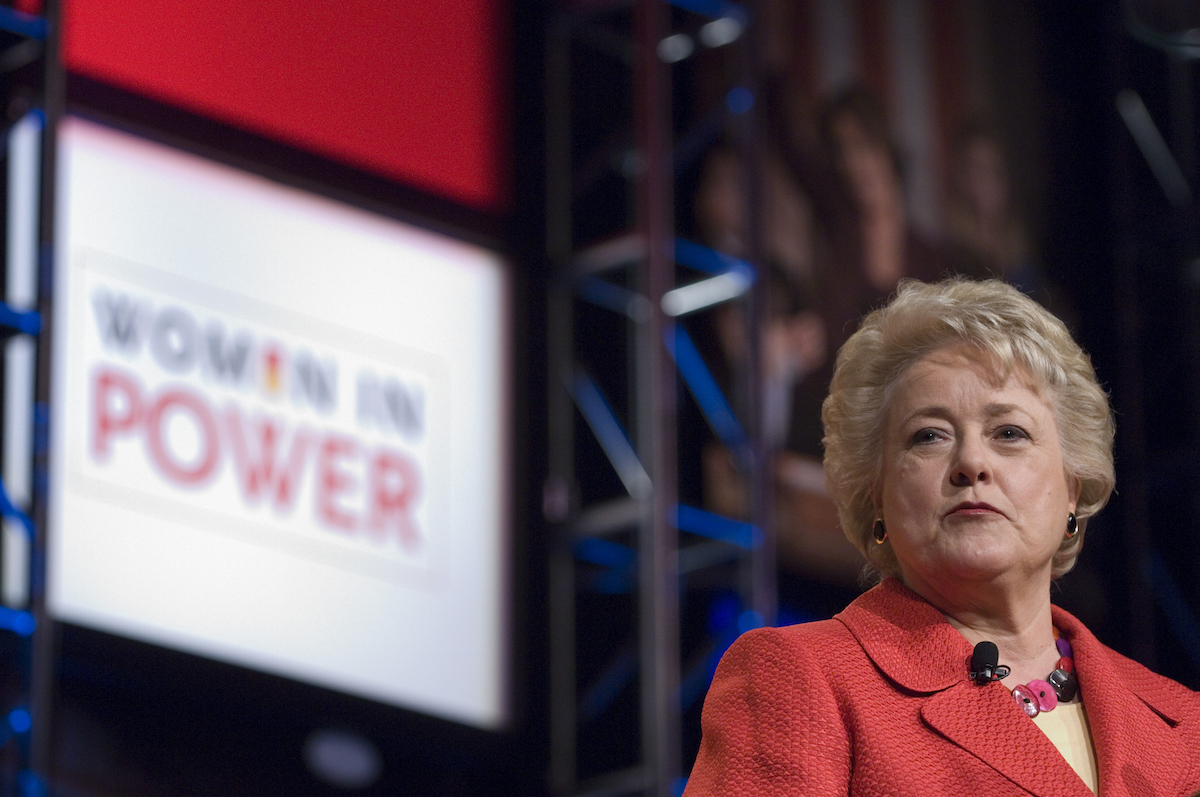
Malcolm, who founded EMILY’s List in 1985, is the exception to the rule for our list, in that she is not noticeable for actually running for office herself. When she founded that organization, no Democratic woman had ever begun a Senate career in her own right. Malcolm and the friends she enlisted to help aimed to change that by raising early money for female candidates. (The organization’s name stands for Early Money is Like Yeast.) EMILY’s List has a hundreds-long list of women—Democratic and pro-choice women— who they’ve helped elect to local and state office as well as to Congress. The organization recruits and trains women to run successful campaigns for political office and supports them along the way.
Claire McCaskill (1953- )
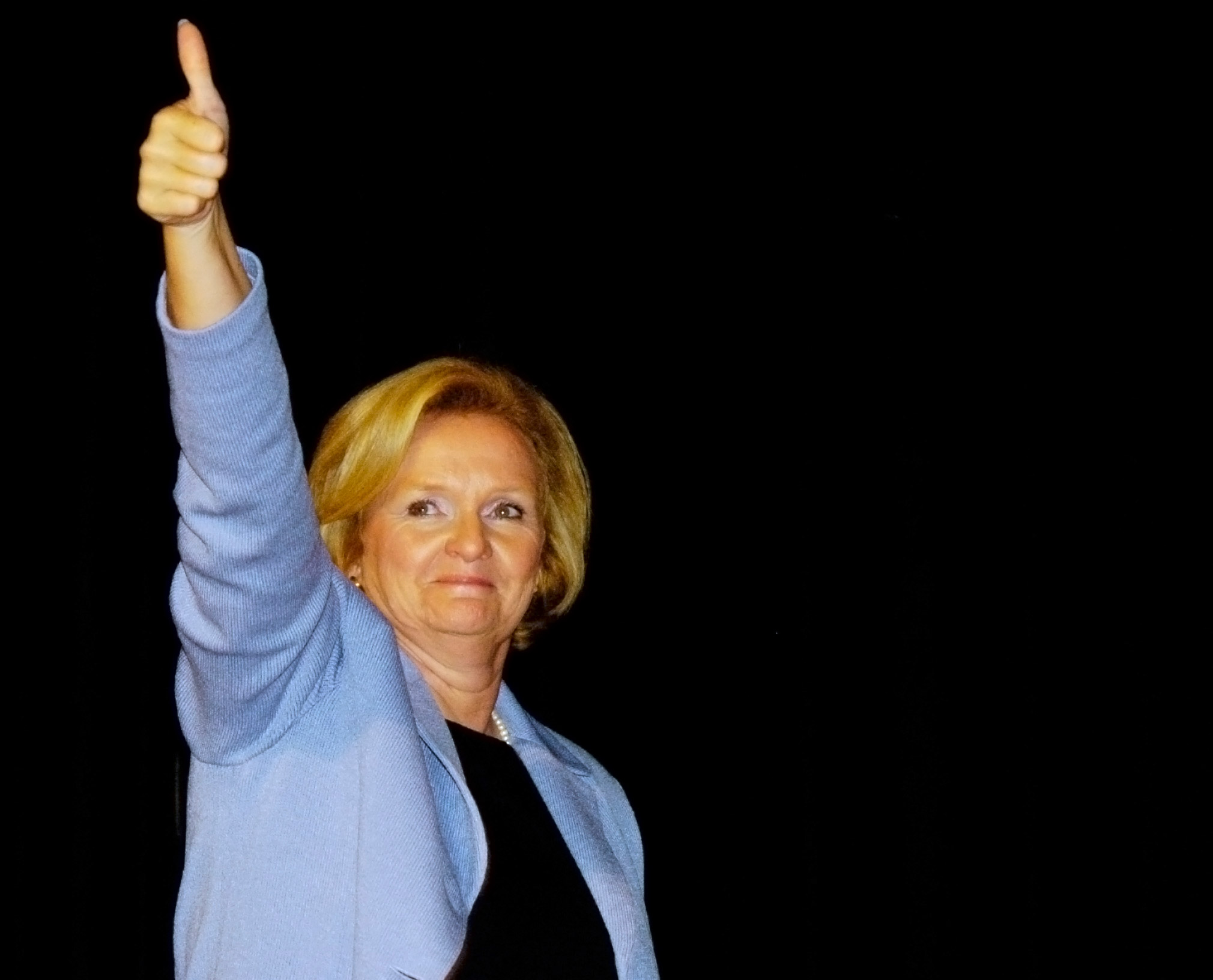
The senior Senator from Missouri, Claire McCaskill became the first elected female Senator from her state in 2007, and has come to be known as one of the most moderate members of the entire Senate. In 2014, she introduced the Victims Protection Act into the Senate, aiming to protect sexual assault survivors in the military.
Barbara Mikulski (1936–)
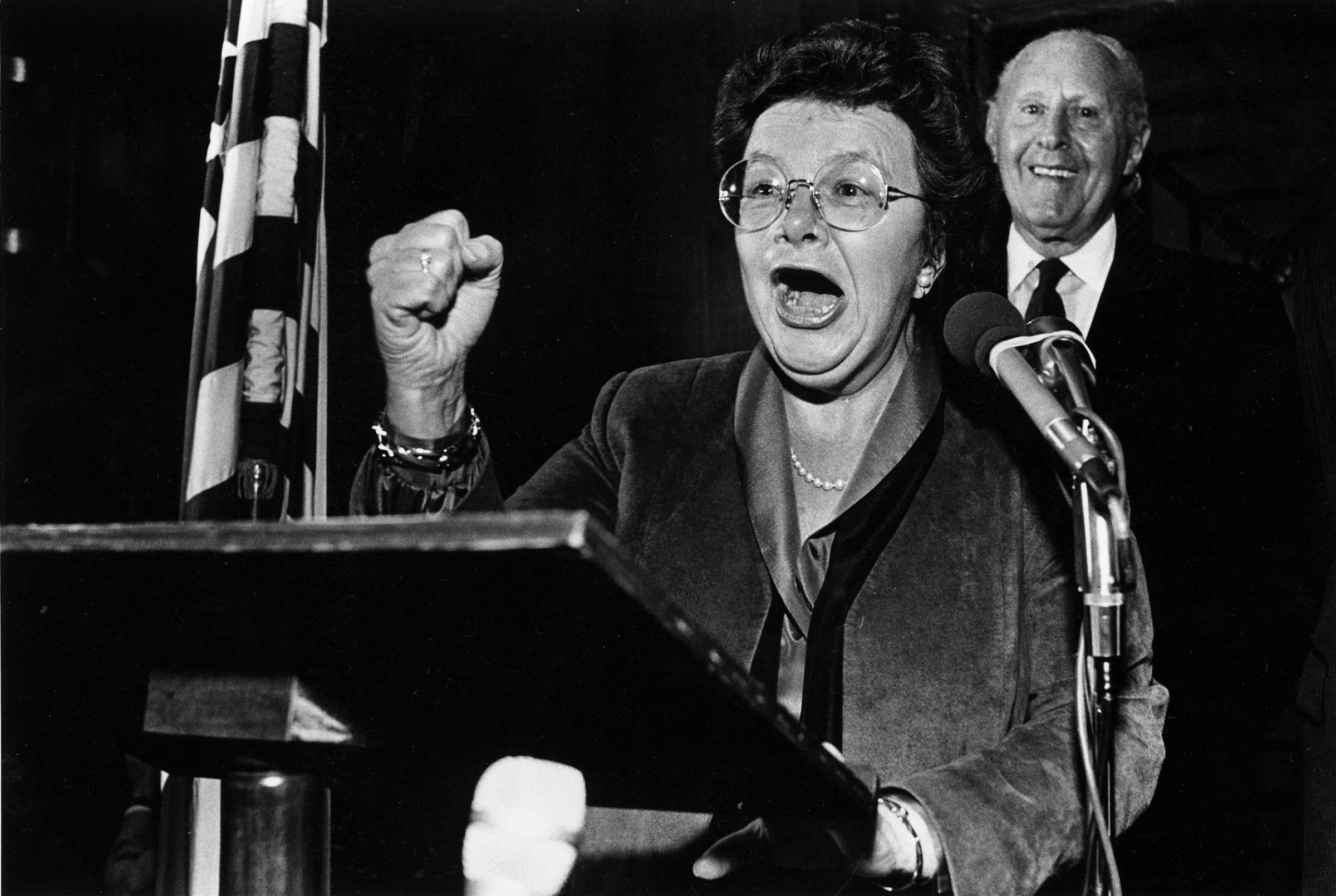
At the point of her decision to retire in 2017 at age 80 — about which she posed the question, “Do I spend my time raising money? Or do I spend my time raising hell?” — her 40 years of work on Capitol Hill made her the longest-serving woman in Congress. A social worker before serving on the Baltimore City Council, her first campaign for Senate was unsuccessful, but two years later, in 1976, she was elected to the House. She served five terms before she was elected to the Senate in 1986, when TIME wrote that she was “blunt, outspoken and feisty” and “a fierce debater, with a fondness for pointed quips.” Mikulski pushed local advances for Maryland, like environmental protections or highway funding; helped protect the New Horizons mission to Pluto when budget concerns jeopardized it in 2002-3; pushed to advance women’s rights by championing legislation like the Lilly Ledbetter Fair Pay Act and supporting shelters for victims of domestic violence; and was the first woman to chair the powerful Appropriations Committee. She also co-wrote two mystery novels and was awarded the Presidential Medal of Freedom in 2015.
Patsy Takemoto Mink (1927-2002)
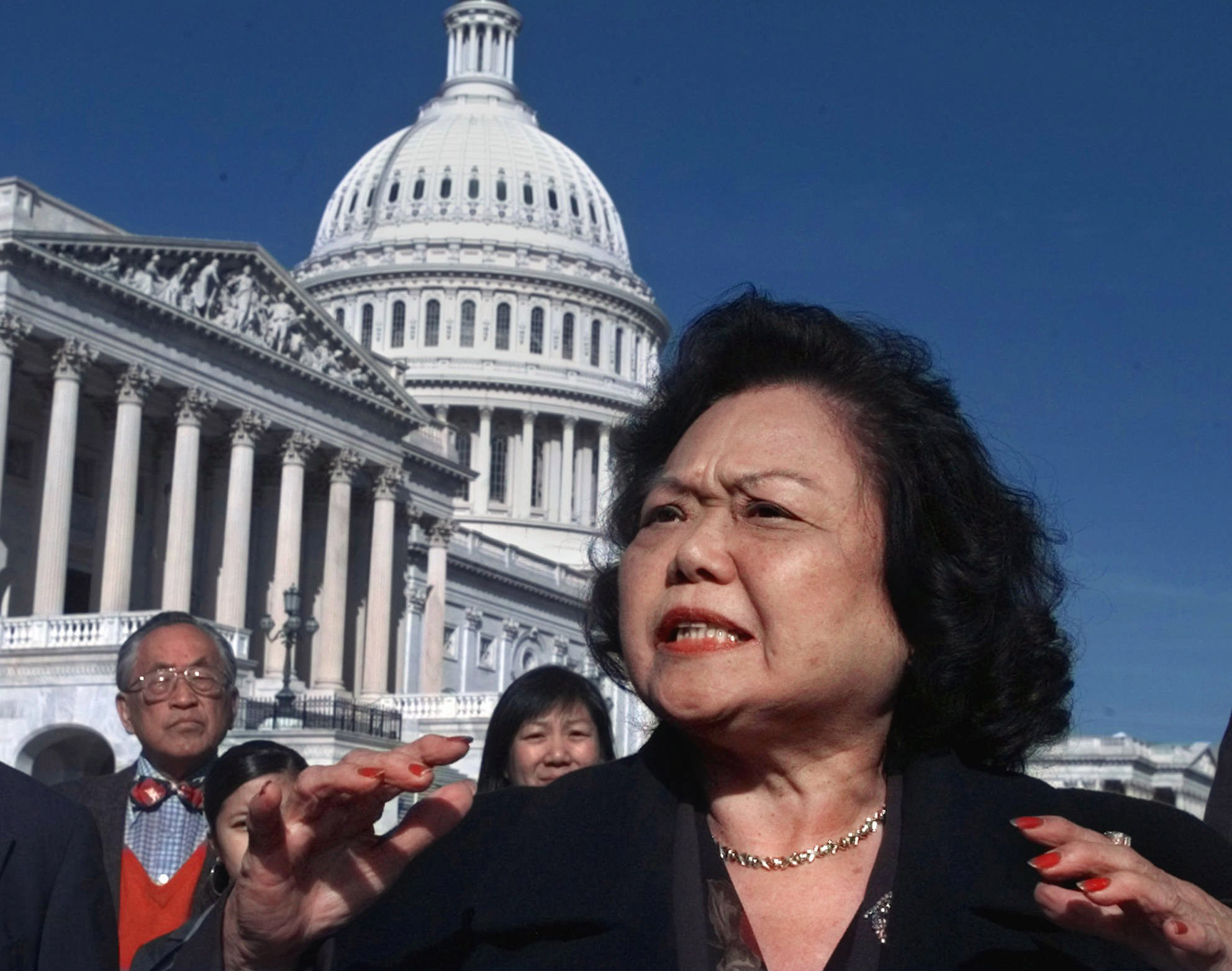
As the first Asian-American woman in the House of Representatives, representing Hawaii from 1965 to 1977 and again from 1990 to 2002, Mink co-sponsored Title IX of the Education Amendments of 1972 with fellow congresswoman Edith Green, barring gender discrimination in academics and athletics at schools receiving federal funding. This law dramatically changed opportunity and participation in sports for women across the country, among other things. In addition to championing women’s rights, civil rights and education reform, Mink was an early critic of the Vietnam war.
Michelle Obama (1964-)
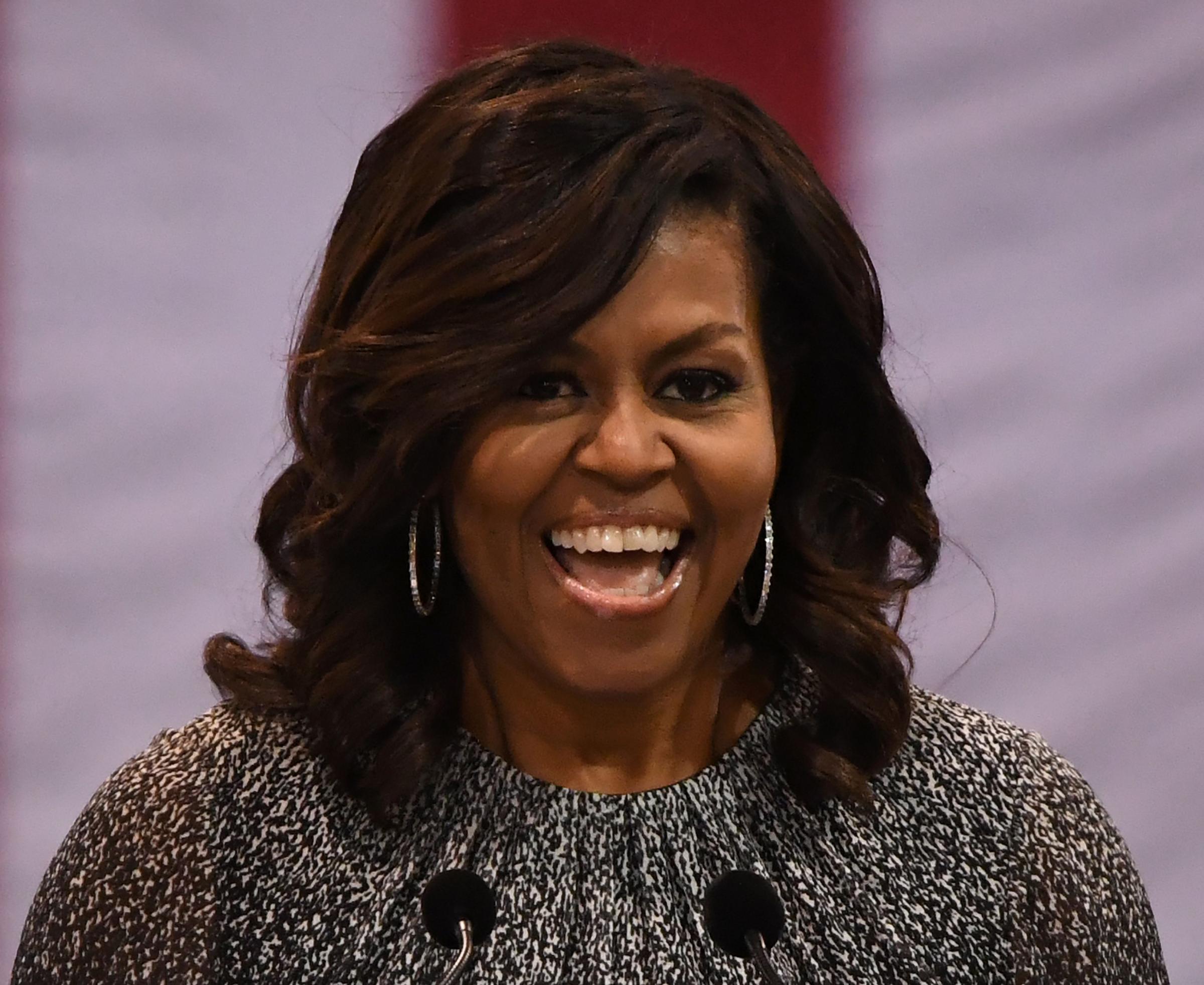
The first African-American First Lady and a lawyer by training, Obama made the First Lady’s role more relatable than ever by utilizing social media platforms to promote her healthy eating, arts, girls’ education and college initiatives. One of her most significant legacies has been the first modernization of nutrition labels in over 20 years. Her popularity in the polls at times surpassed that of her husband, earning her the nickname “The Closer” on the campaign trail.
Sandra Day O’Connor (1930- )
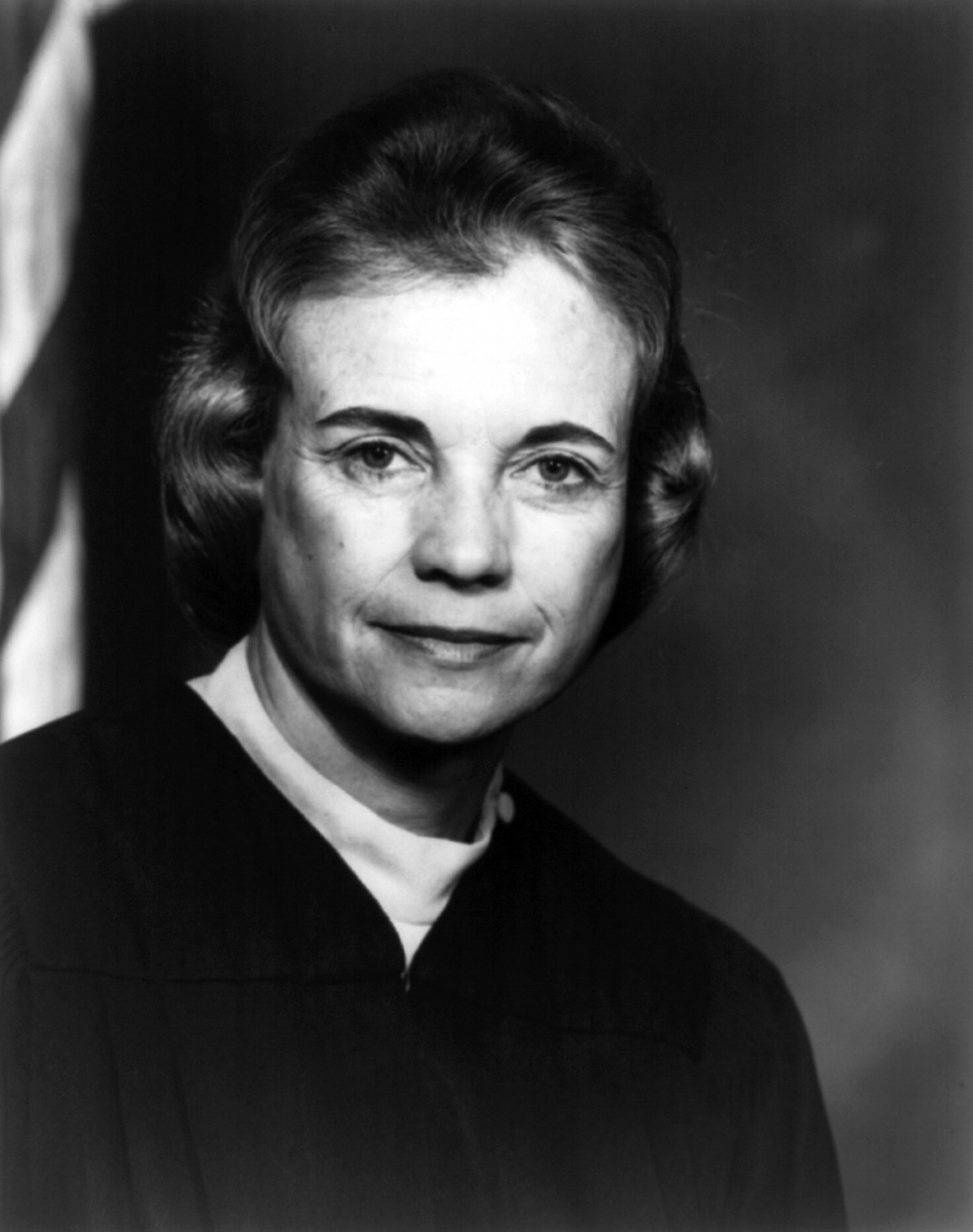
The first female Supreme Court Justice, O’Connor was nominated by Ronald Reagan and confirmed by the Senate 99-0. She was known for upholding states’ rights and was often a swing vote, perhaps most famously by casting the deciding vote in Bush v. Gore, making George W. Bush president. She is also famous for letting Roe v. Wade stand in abortion cases, rejecting challenges to the use of affirmative action in higher education and for writing the opinion reiterating that all U.S. citizens are entitled to due process in Hamdi v. Rumsfeld, in which she wrote that “a state of war is not a blank check for the President when it comes to the rights of the Nation’s citizens.”
Sarah Palin (1964- )
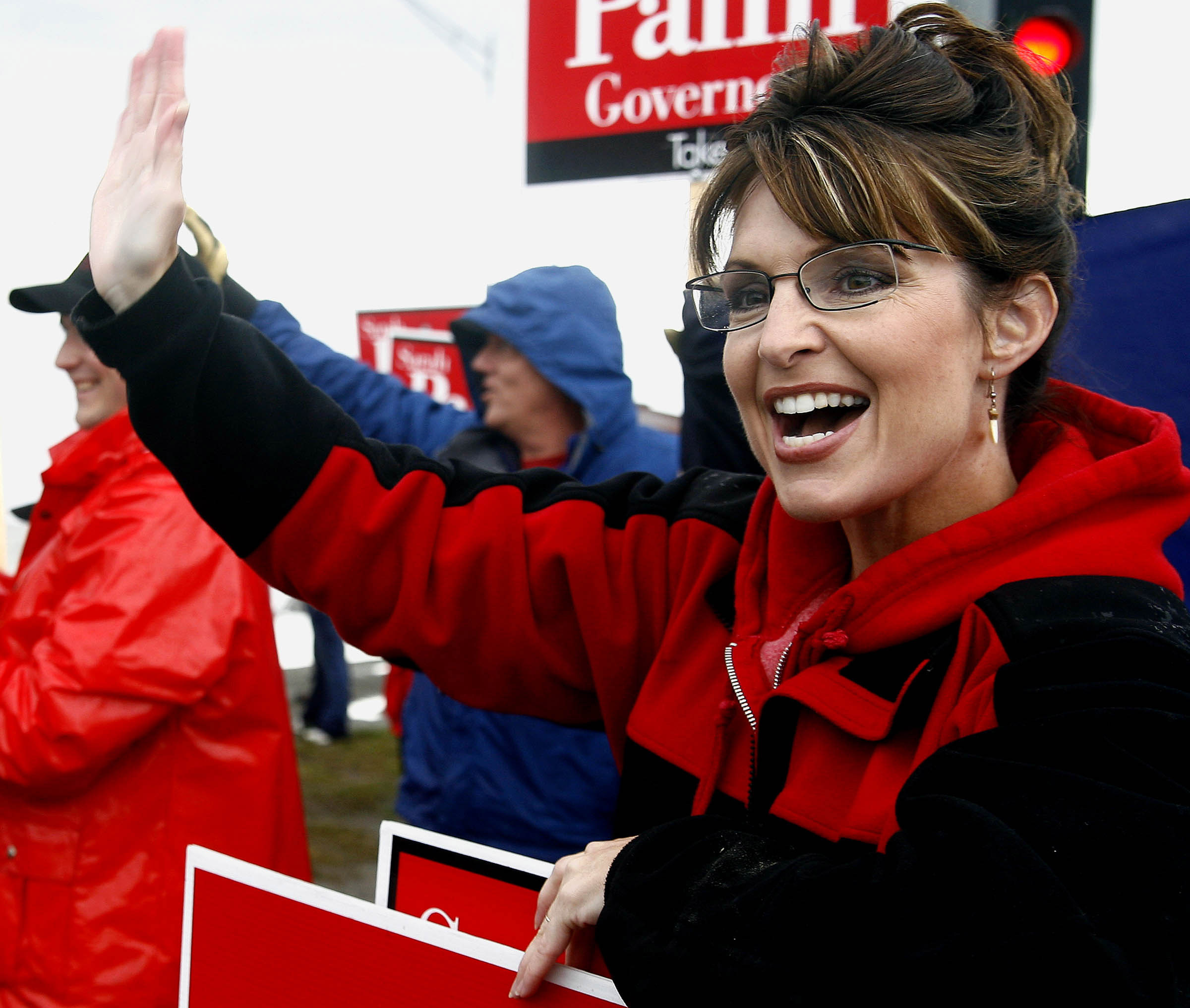
Sarah Palin shot from relative national obscurity as the Governor of Alaska to countrywide prominence when John McCain named her his running mate—and the first female vice-presidential nominee for the Republican party—in 2008. She grew to be one of the most prominent voices for the Tea Party movement as a pro-life and pro-gun-rights advocate. As governor, she notably signed a bill that would allow an Alaskan gas pipeline, and since she stepped down in 2009, she has been a political commentator and television star.
Nancy Pelosi (1940- )
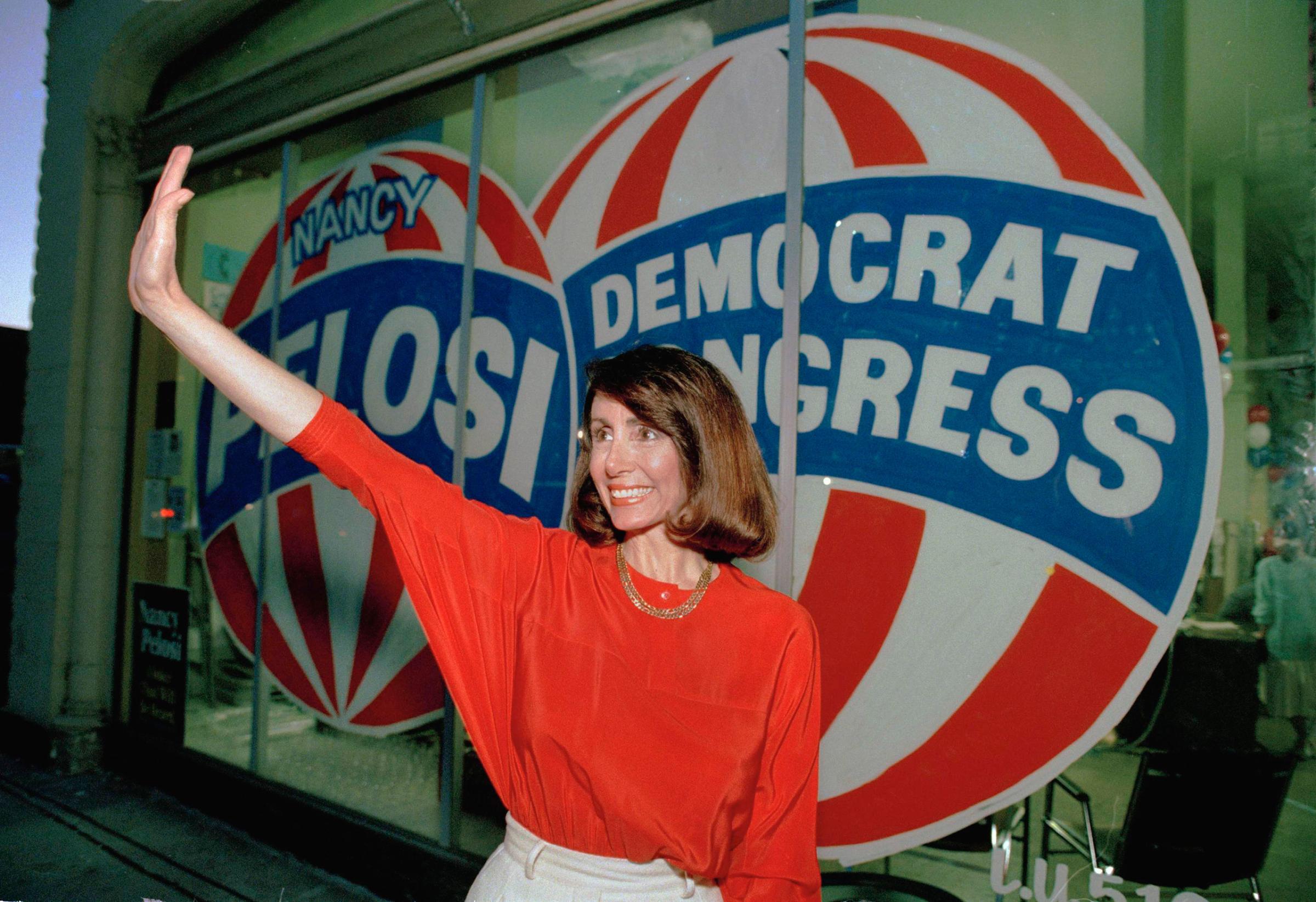
The Bay Area congresswoman became the highest ranking elected female leader in the U.S. when she was elected Speaker of the House of Representatives in 2007. She helped push through President Obama’s historic health care law, the law that raised fuel-efficiency standards for cars and trucks for the first time in 32 years, the first federal minimum wage increase in a decade—from (from $5.15 to $7.25)—and the largest college aid expansion since the G.I. bill.
Frances Perkins (1880-1965)
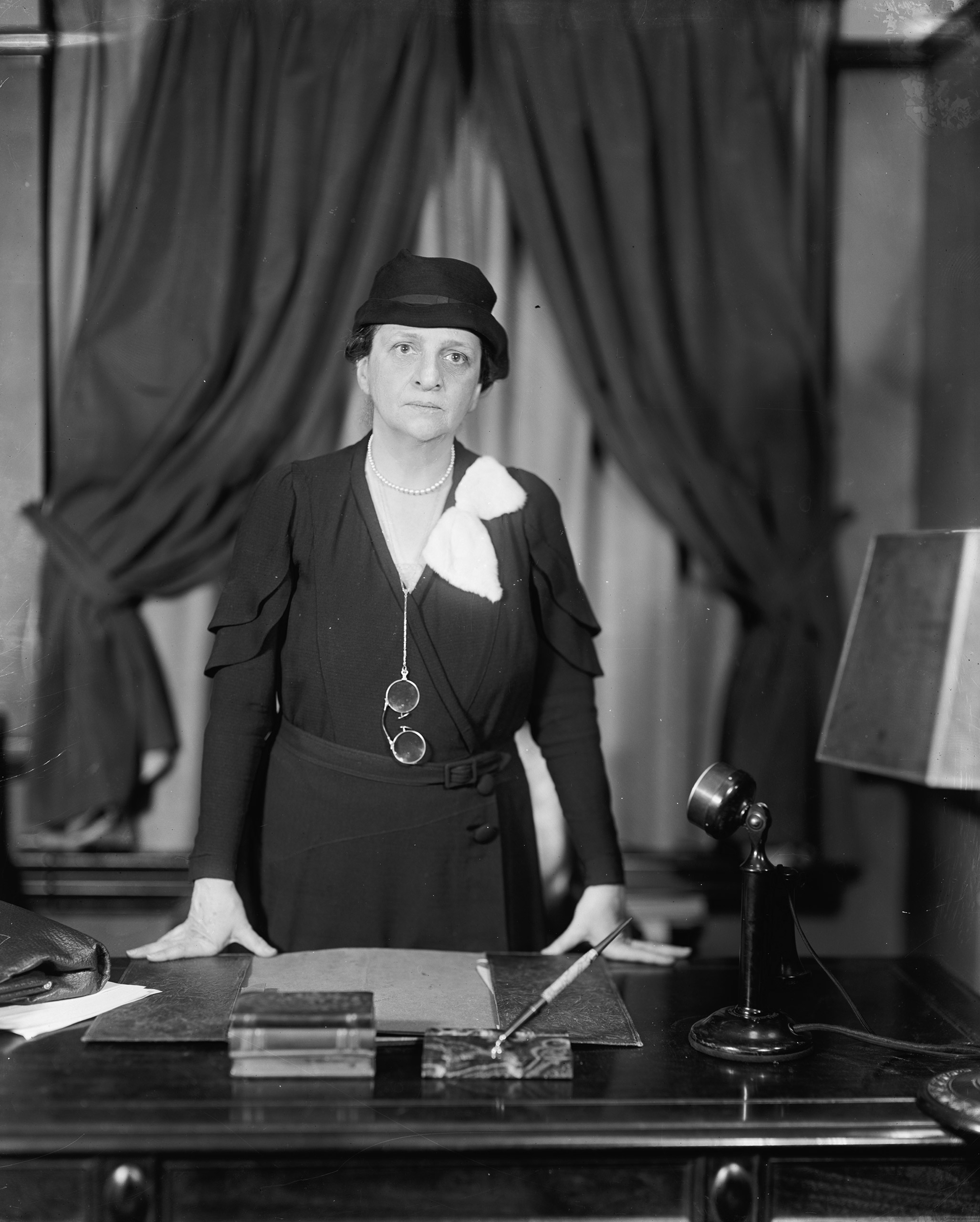
As Labor Secretary from 1933-1945, she was the first woman to hold a cabinet position. Perkins was an architect of FDR’s New Deal, saw to much of the implementation of policies like minimum wages and unemployment compensation, and drafted the Social Security Act. She majored in physics and chemistry at Mount Holyoke, but an economic history course that required her to tour nearby factories sparked her life’s work. Having been a social worker, high school teacher and colleague of Jane Addams at Chicago’s Hull House, she moved to New York, where she witnessed the 1911 Triangle Shirtwaist Factory fire. She would later say that was “the day the New Deal began.”
Jeannette Rankin (1880-1973)

The Republican social worker became the first woman to be elected to Congress when she was elected to represent Montana in the House of Representatives in 1916. Coming from a state that passed women’s suffrage in 1914, she came up with the idea for a committee on women’s suffrage and as a member, started the House floor debate on a constitutional amendment that would give women the right to vote. (The amendment was ratified in 1920, after Rankin’s term had ended.) She was also a noted pacifist, voting against the USA’s entrance into both World War I and World War II.
Janet Reno (1938-2016)
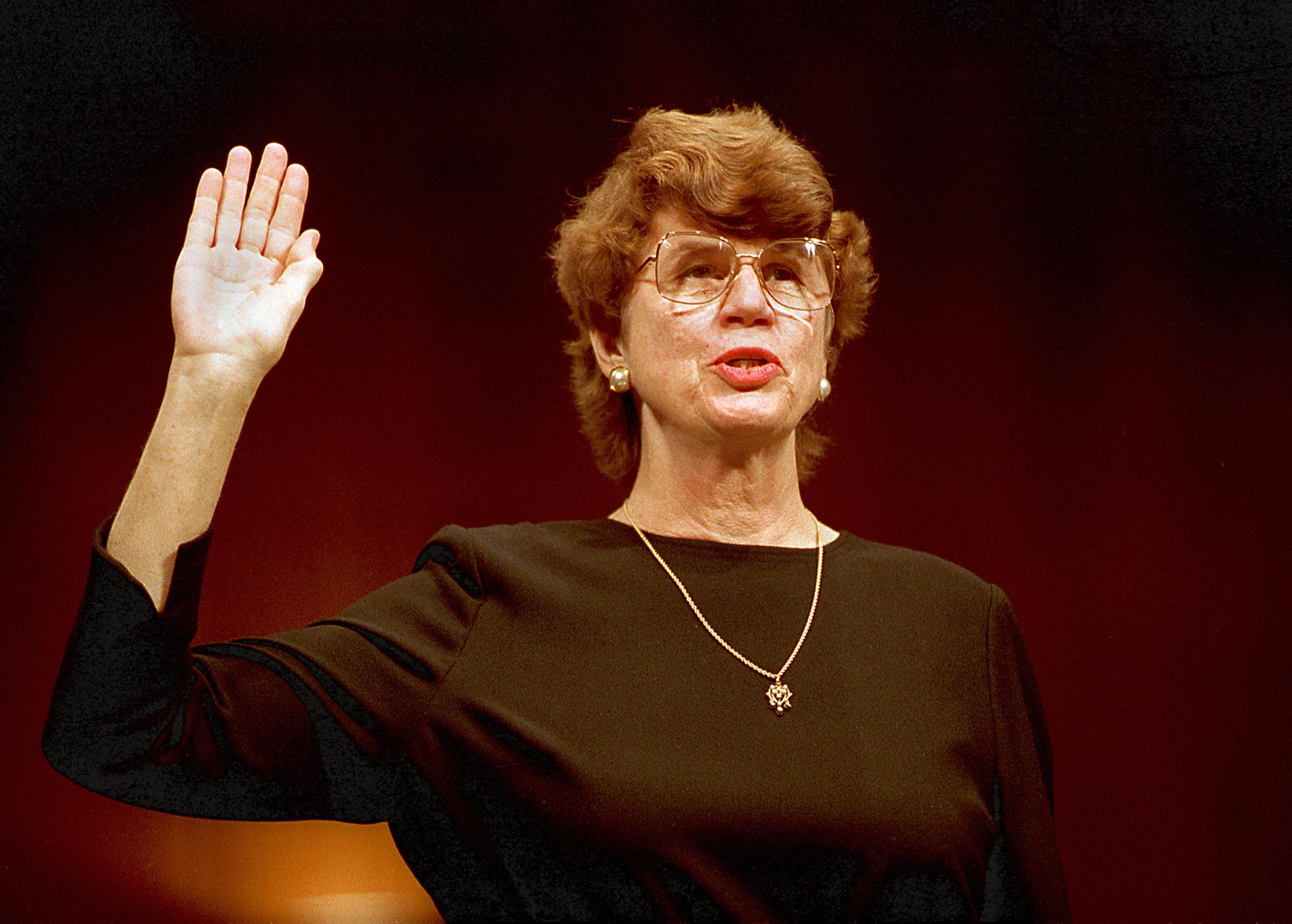
Janet Reno became the first female Attorney General of the United States after President Bill Clinton appointed her in 1993, and she held the post during eight years punctuated by high-profile cases. During her tenure, she notably took the fall for the failure of a deadly Waco, Tex., police raid that went awry, declined to appoint independent investigators into Clinton’s campaign finances in 1997 and extended the Whitewater investigation into Clinton’s land deal to include the Monica Lewinsky scandal. The relative Washington outsider had previously served as a Florida State Attorney for 14 years.
Condoleezza Rice (1954- )
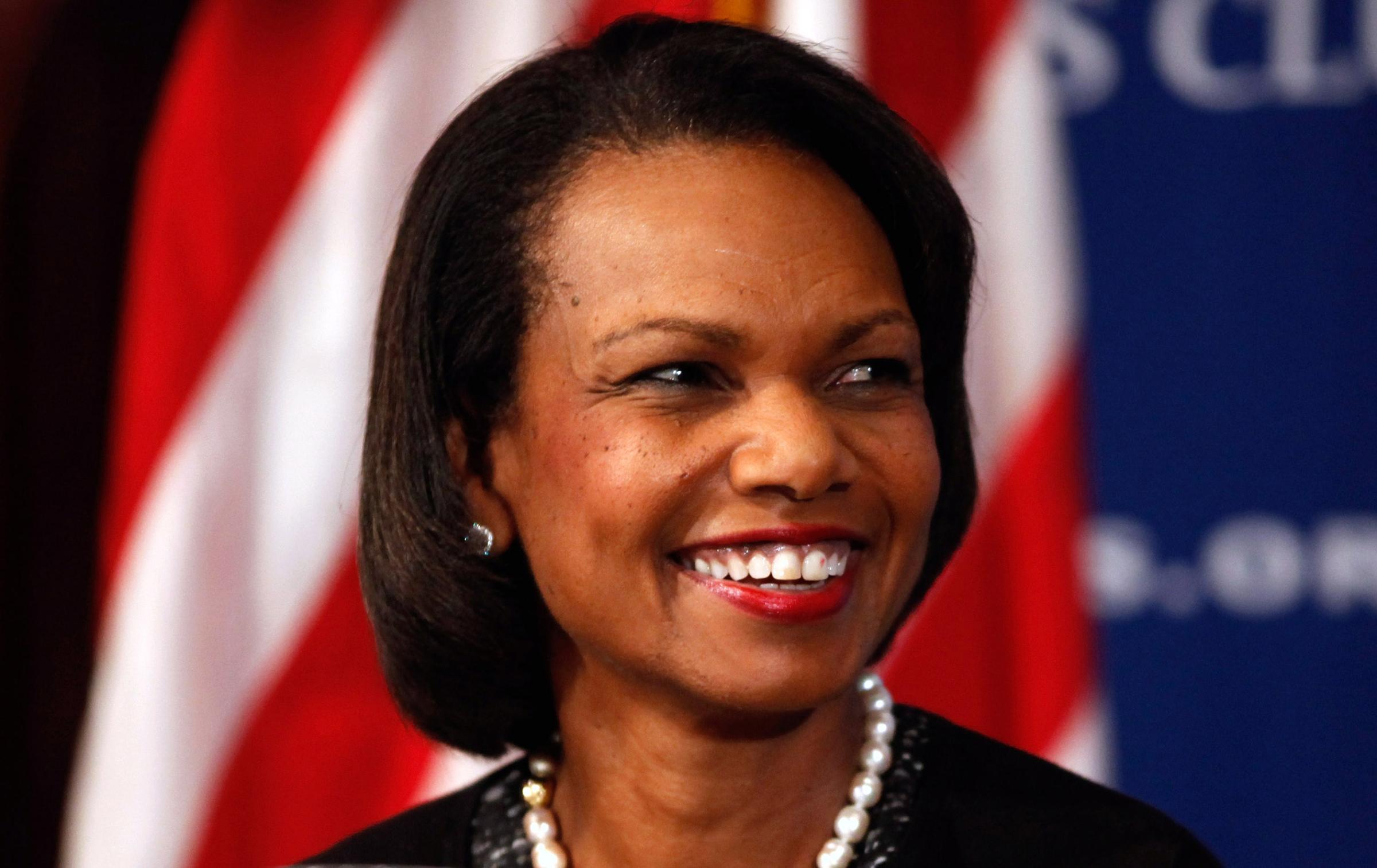
Serving in President George W. Bush’s administration, she became the first African-American woman to serve as Secretary of State and national security advisor. She held the record for most miles traveled by a Secretary of State until John Kerry broke it in April 2016; she got the White House to support nuclear negotiations with Iran and North Korea, and she was the first Secretary of State to go to Libya in over 50 years.
Ann Richards (1933-2006)
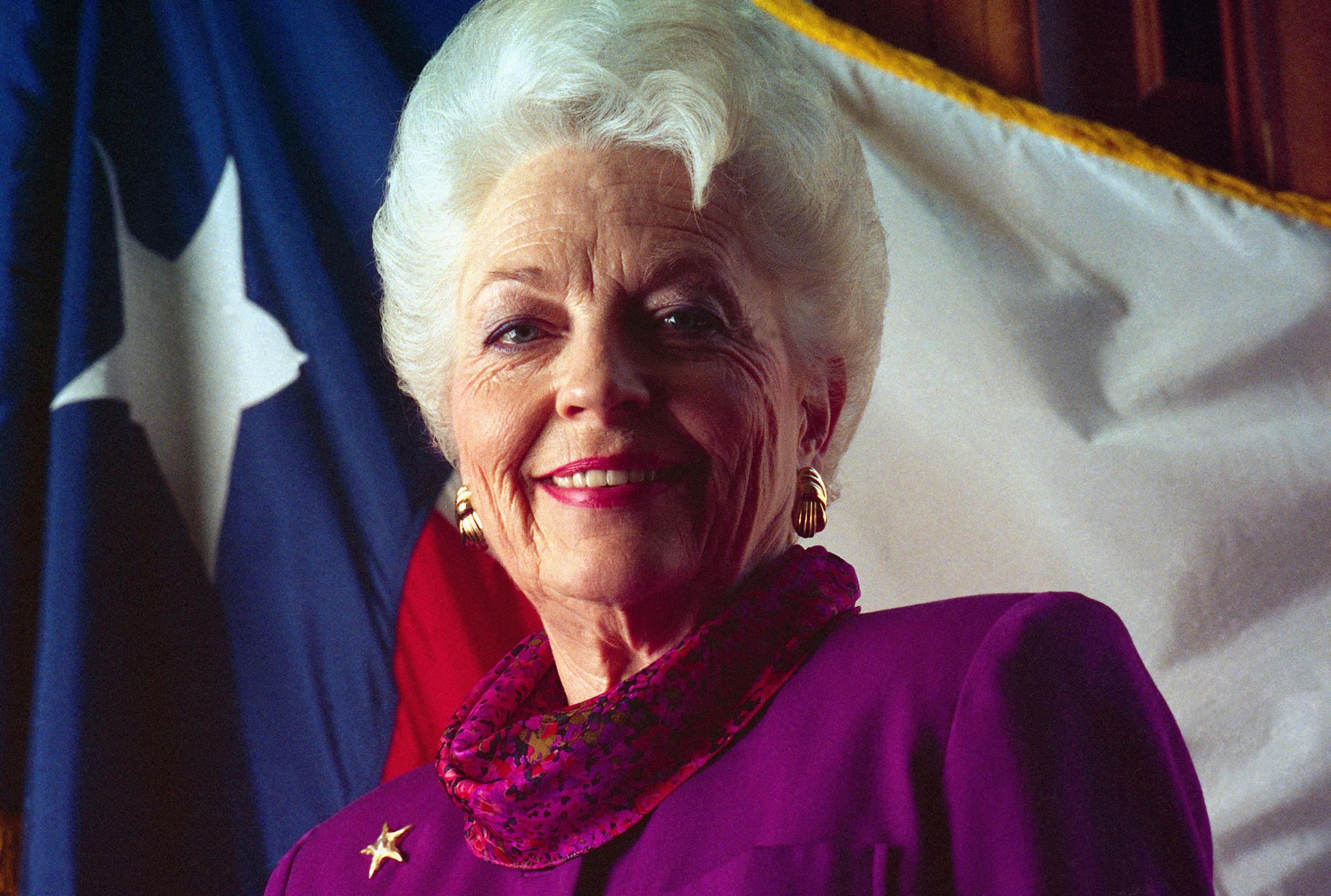
As Governor of Texas from 1991-1995, Richards left her mark, appointing more women and minorities to official positions—including the first women and African-Americans in the Texas Rangers—than any of her predecessors had. She also worked to improve the prison system, and vetoed bills that would have allowed concealed carry of handguns and damaged the environment. (She’s also mother to Planned Parenthood’s Cecile Richards and three other children.) In 1988, as the keynote speaker at the Democratic National Convention, she famously said of Republican Nominee George Bush: “Poor George, he can’t help it. He was born with a silver foot in his mouth.” In addition to her work in public office, she helped raised awareness about alcoholism by being public about her own treatment in 1980.
Edith Nourse Rogers (1881-1960)
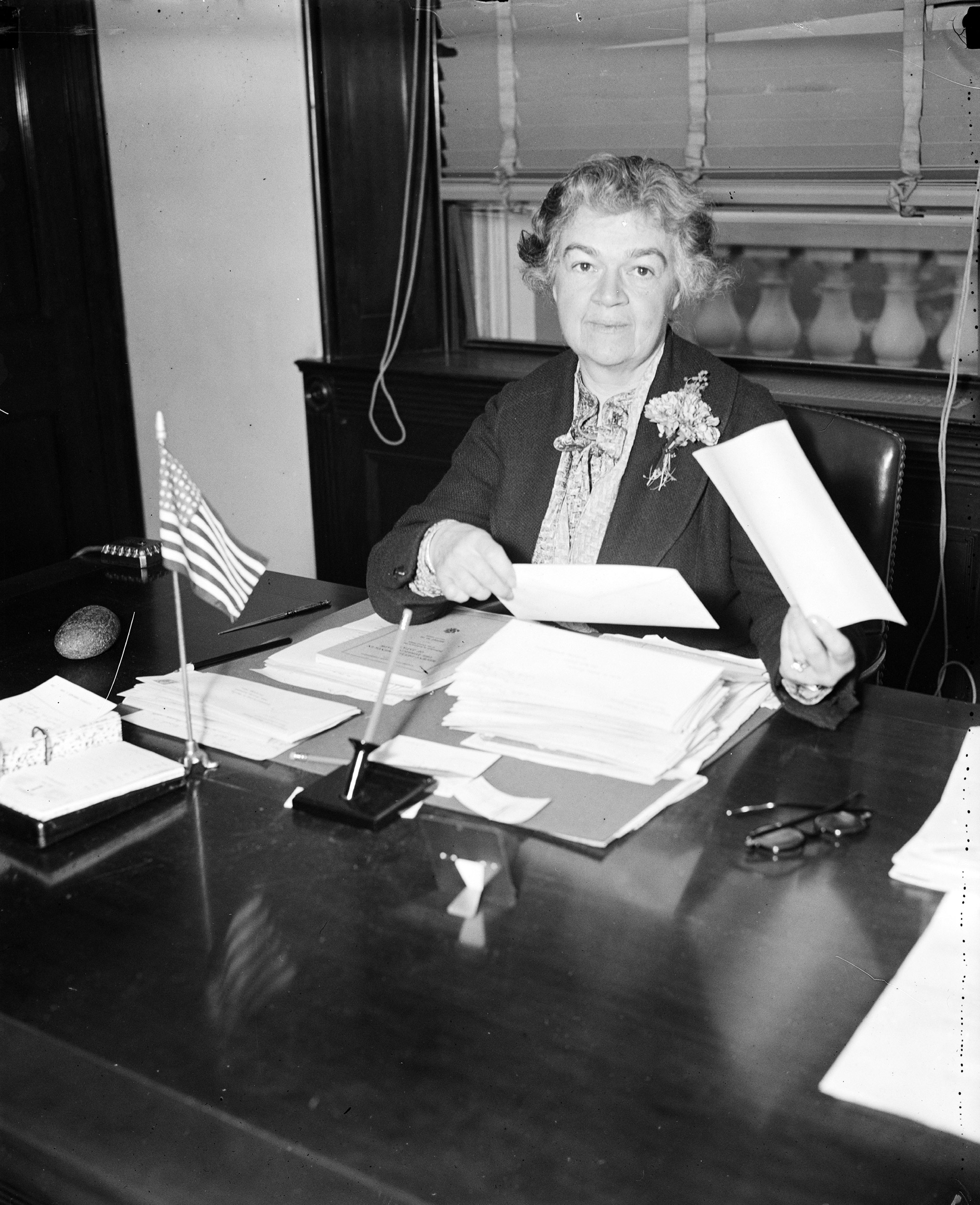
Rogers represented Massachusetts in Congress from 1925 to 1961. During World War I, she volunteered with the YMCA and Red Cross and continued to work with military hospitals after the war ended, while her husband served in Congress. After her husband’s death in 1925, she ran in the special election to fill the remainder of his term—she won, and then won another 17 elections after that. She introduced legislation that created the Women’s Auxiliary Army Corps in 1942 and in 1944 helped draft the G.I. Bill of Rights, which, among other provisions, helped WWII veterans afford college tuition and provided for low-interest home and small business loans.
Eleanor Roosevelt (1884-1962)
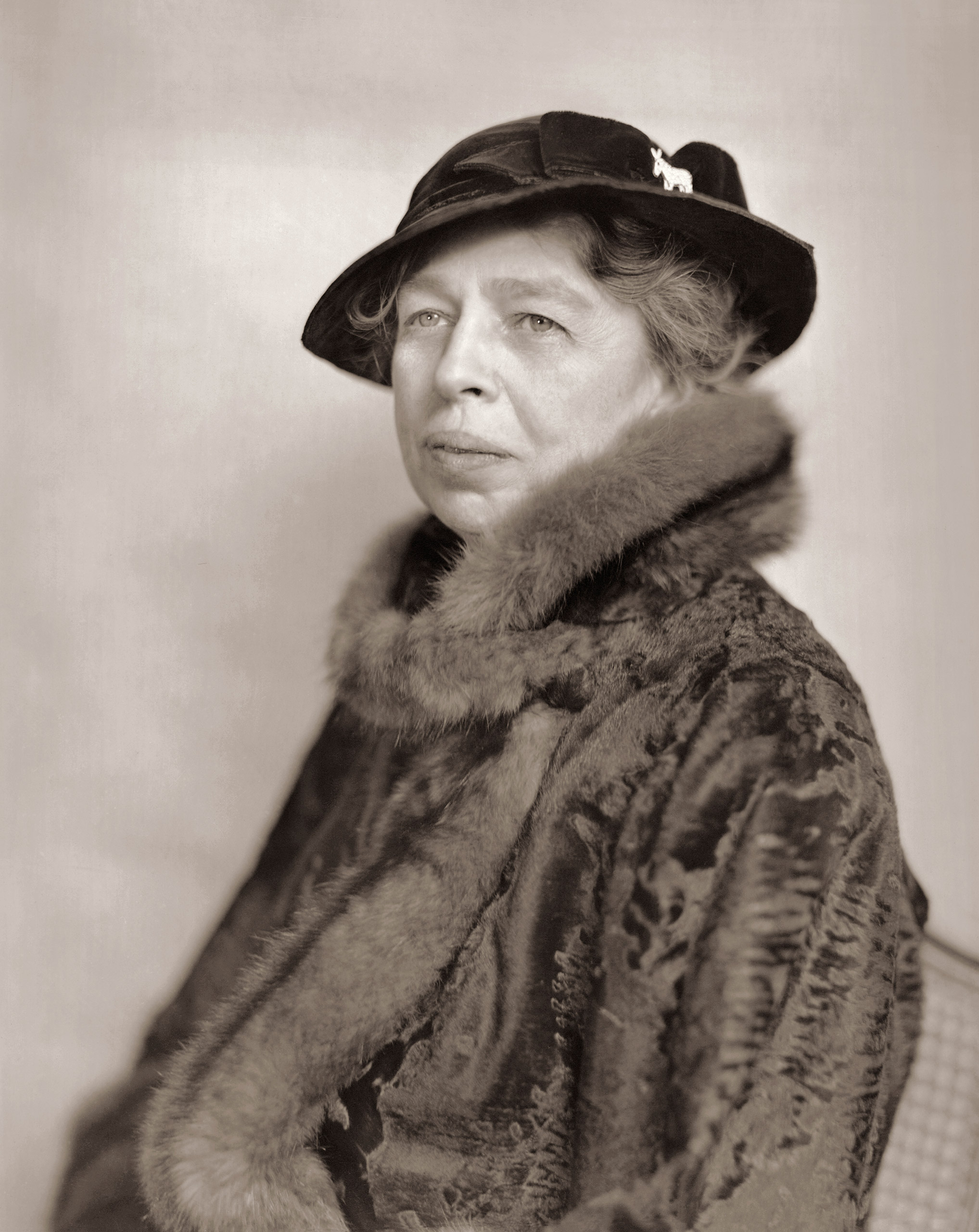
As the longest-serving First Lady (12 years), she hit the road to promote the work of Franklin Delano Roosevelt’s administration and her public policy interests via nationwide press conferences, radio segments and her daily, syndicated newspaper column “My Day.” Having pioneered the activist role of the First Lady, she was later appointed a delegate to the United Nations General Assembly by Harry S. Truman, after FDR died, and served as the first chairperson of the U.N. Commission on Human Rights when it drafted the Universal Declaration of Human Rights in the wake of World War II.
Ileana Ros-Lehtinen (1952- )
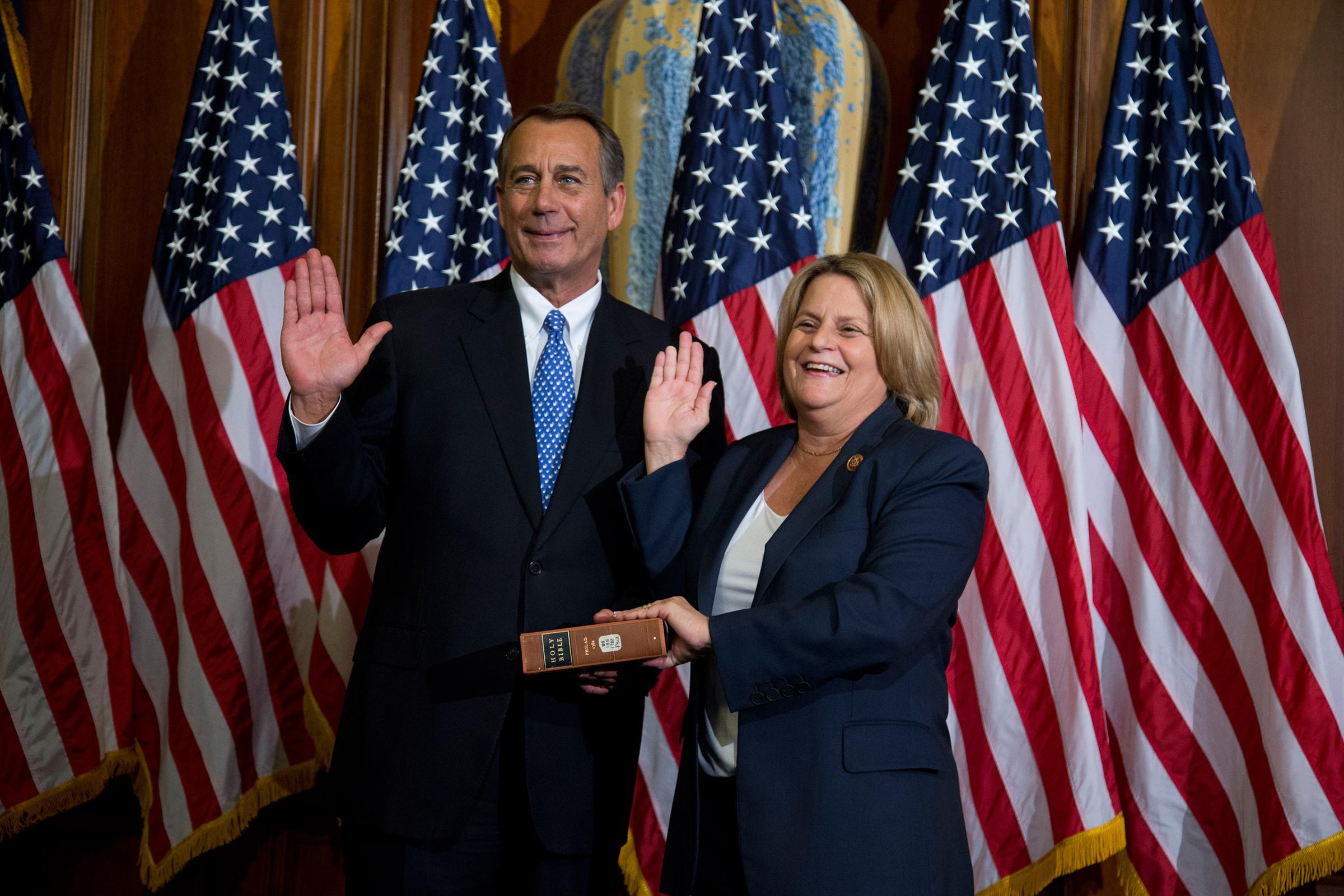
Ros-Lehtinen became the first Cuban American and Hispanic woman to be elected to Congress in 1989, and is now the most senior Florida member of the U.S. House of Representatives and the most senior female Republican in the House. Born in Havana, Ros-Lehtinen lobbies for the Cuban government to enact political changes that will benefit its citizens, and was a prominent supporter of ending the U.S. embargo on Cuba. She was also the first Republican in the House to support same-sex marriage, announcing her support in 2012.
Nellie Tayloe Ross (1876-1977)
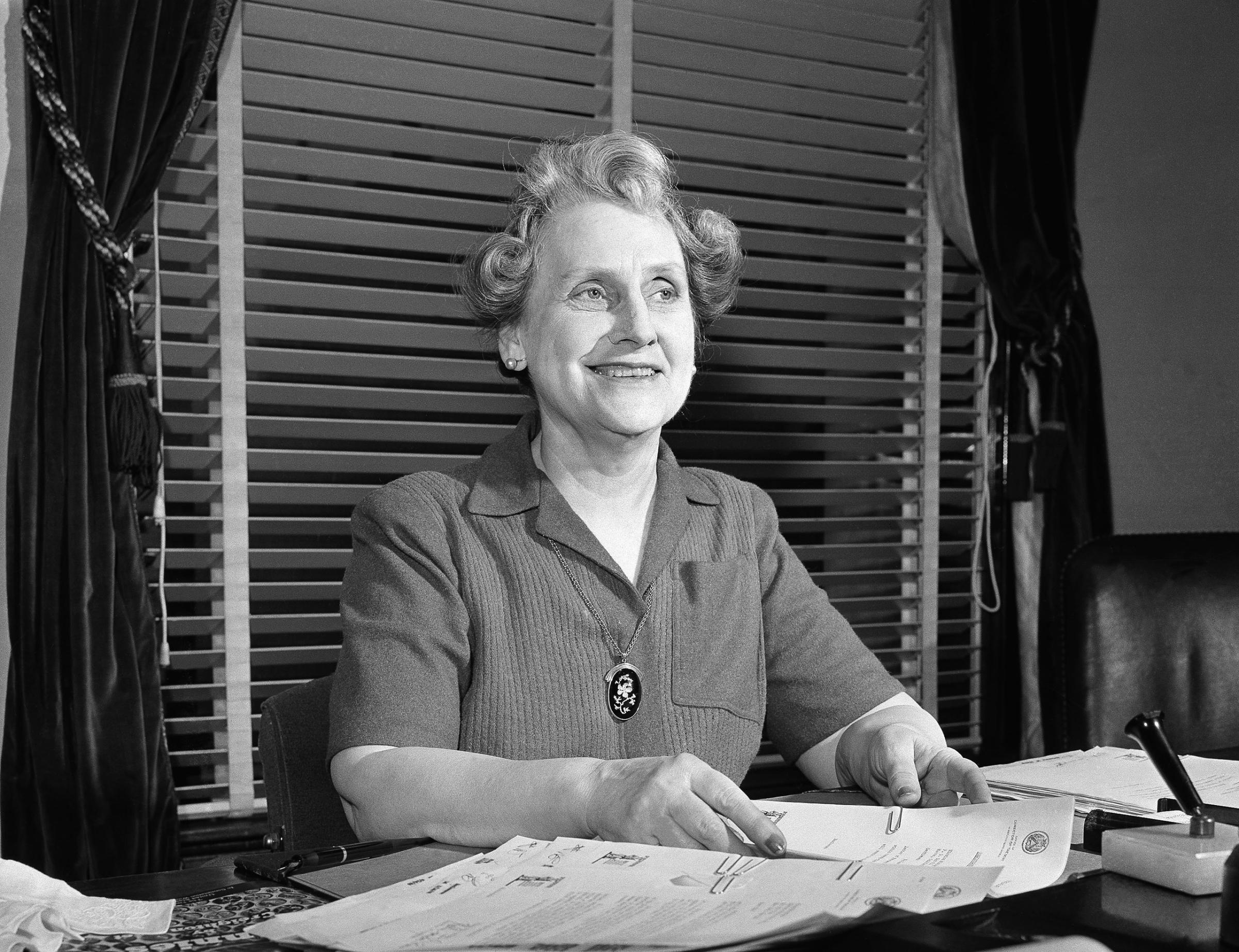
Nellie Tayloe Ross became the first American woman to be a Governor after her husband died and she took over his office in 1924. Her political career was only beginning: After that, she eventually served as vice chair of the National Democratic Committee, and President Franklin D. Roosevelt appointed her the Director of the Mint in 1933. Under her leadership, the mint started printing the Roosevelt dime and the Jefferson nickel.
Phyllis Schlafly (1924-2016)
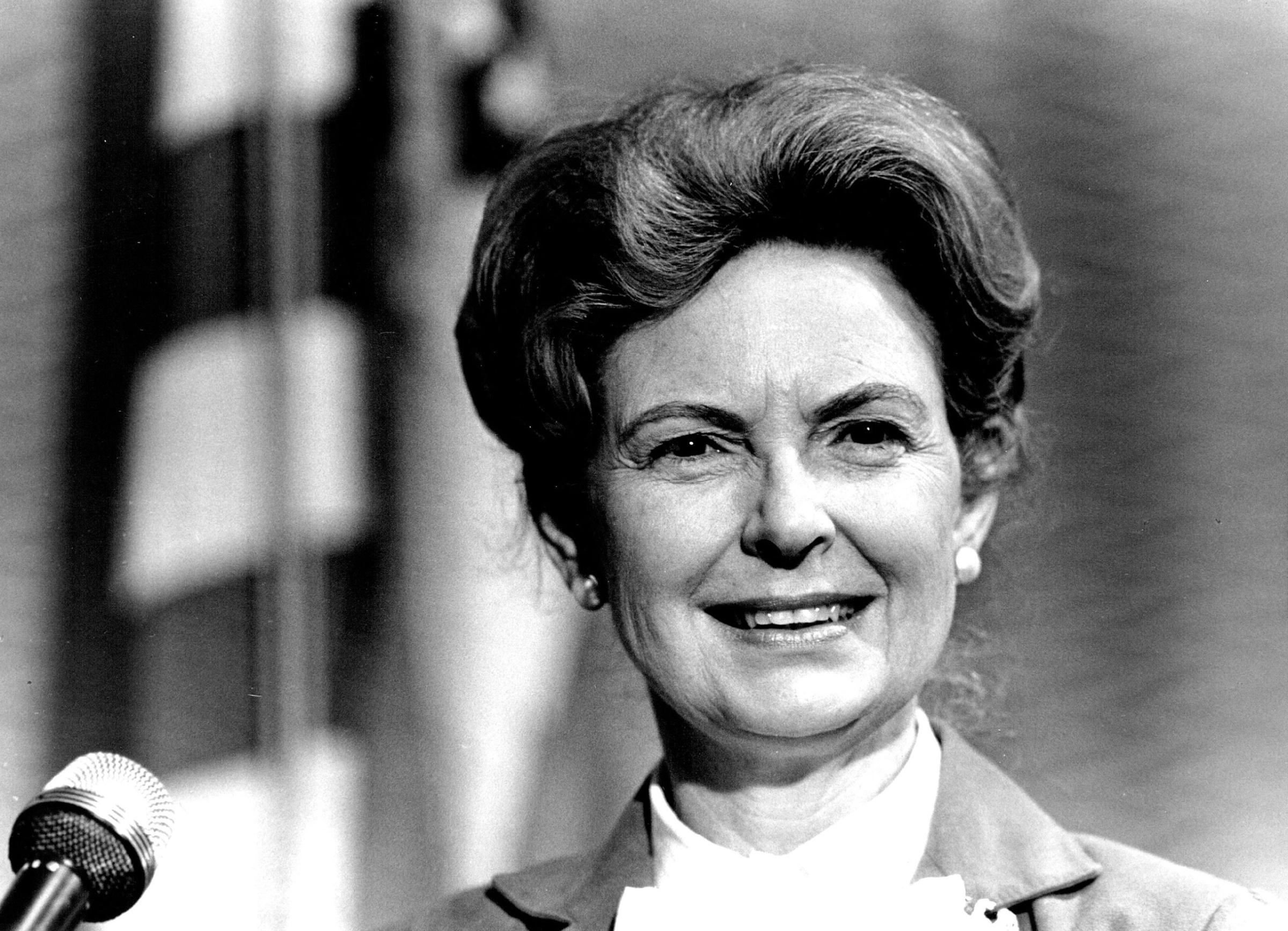
Phyllis Schlafly was a prominent political activist of the late 20th century, known for her outspoken positions against the women’s liberation movement and the Equal Rights Amendment, which she campaigned against. She rose to prominence when her book in support of GOP candidate Barry Goldwater, A Choice Not an Echo, sold more than three million copies in 1964. Though she never successfully won an election, she ran for Congress in 1952 and 1970.
Patricia Schroeder (1940–)
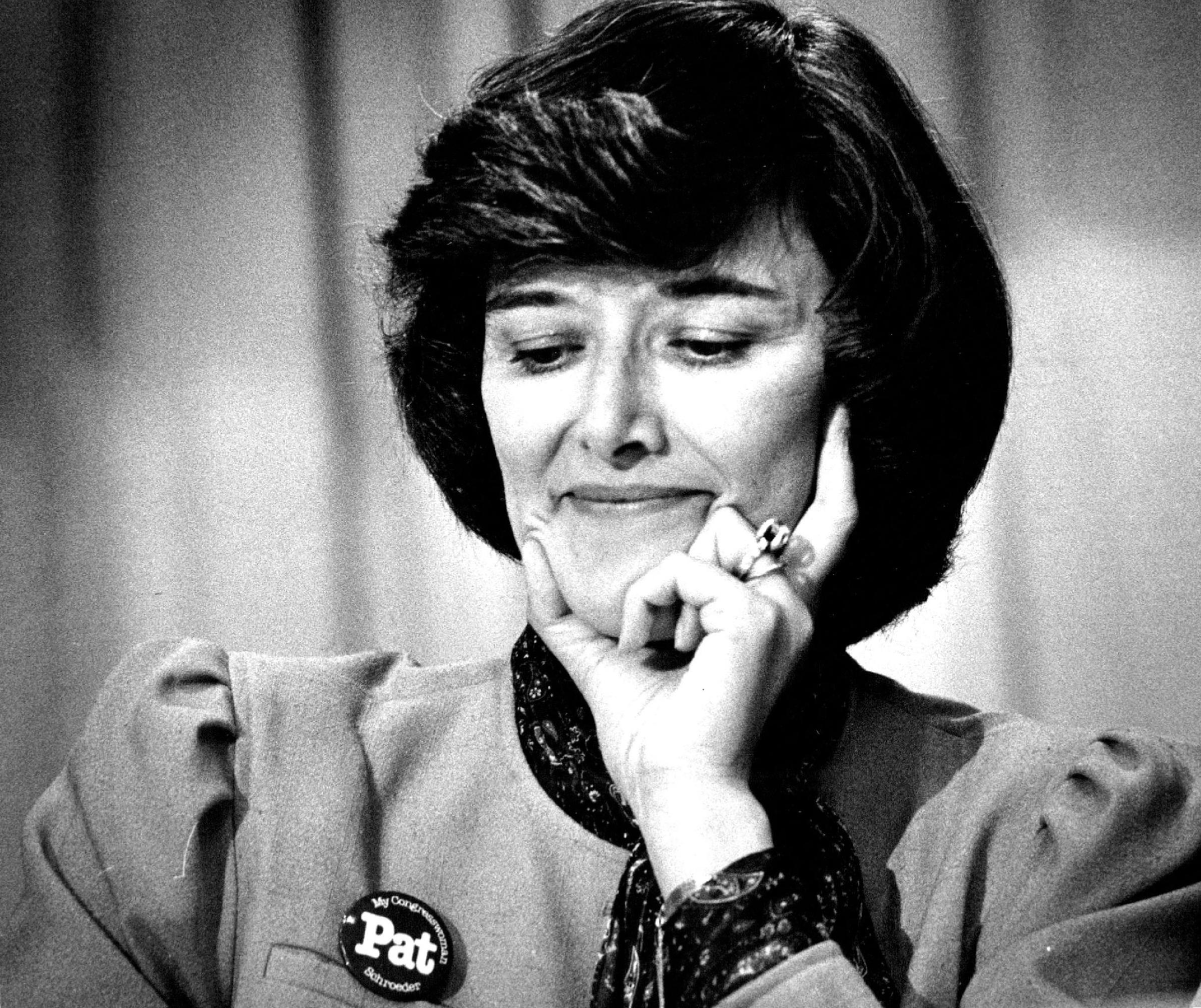
“Little Patsy” was elected to the U.S. House of Representatives 12 times — and was the second–youngest woman ever elected to Congress. She sat on the House Armed Services Committee and championed issues pertaining to women and families, most notably the Family and Medical Leave Act and the National Institutes of Health Revitalization Act. Her responses to sexist comments made national headlines, too. For instance, when a male colleague asked how she could balance the job with being a mother of two small children, she replied, “I have a brain and a uterus. I use both.”
Margaret Chase Smith (1897-1995)
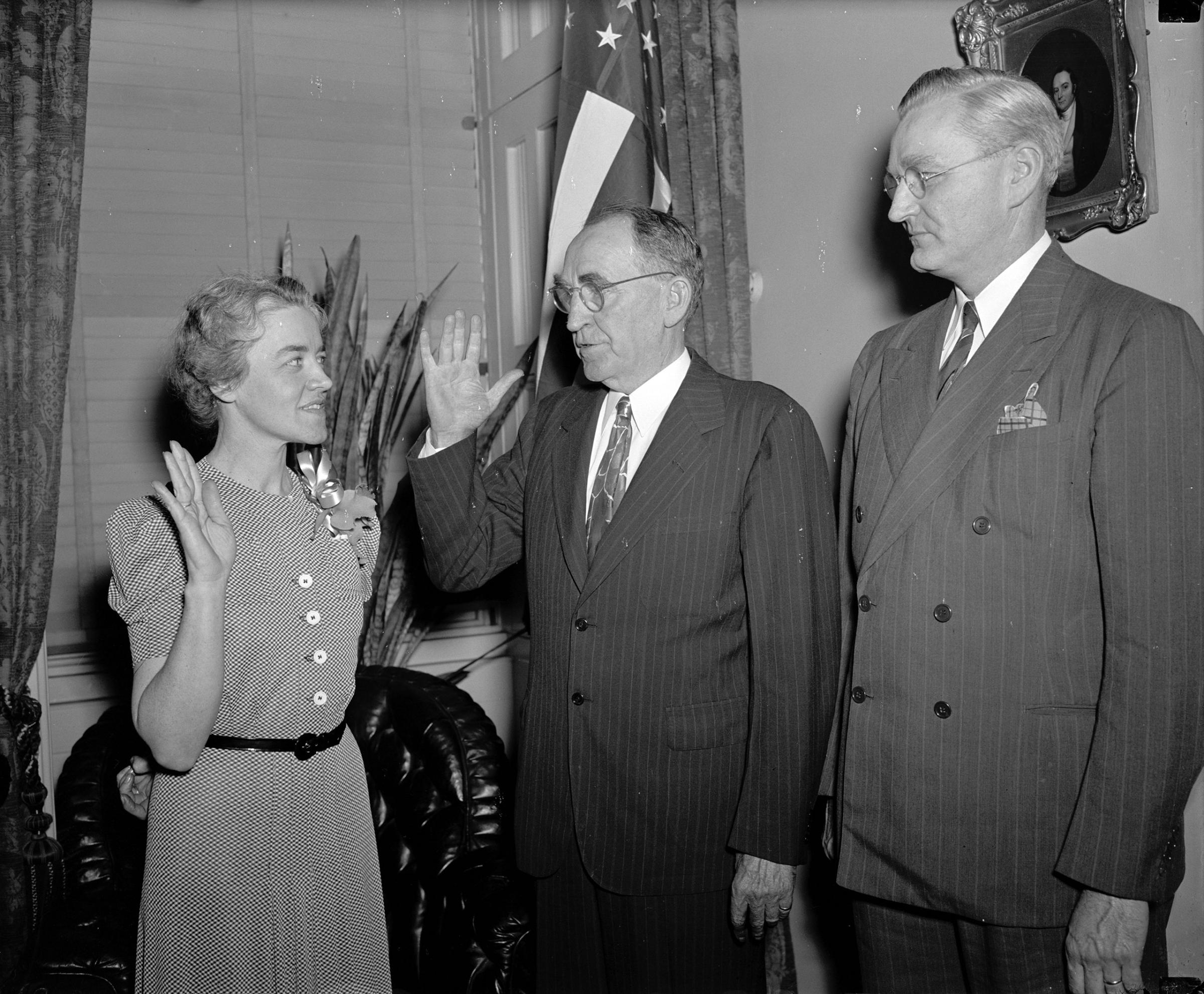
The Maine Republican was the first woman to win election to both houses of Congress and the first to be put forward as a presidential candidate at a national political convention in 1964 (she earned the support of 27 delegates but lost to Barry Goldwater). One of her best-known moments was her June 1, 1950, speech on the floor of the U.S. Senate denouncing her colleague and Red Scare proponent Joseph McCarthy (R-WI): “The American people are sick and tired of being afraid to speak their minds lest they be politically smeared as ‘Communists’ or ‘Fascists,'” she said. “Freedom of speech is not what it used to be in America. It has been so abused by some that it is not exercised by others.”
Sonia Sotomayor (1954- )
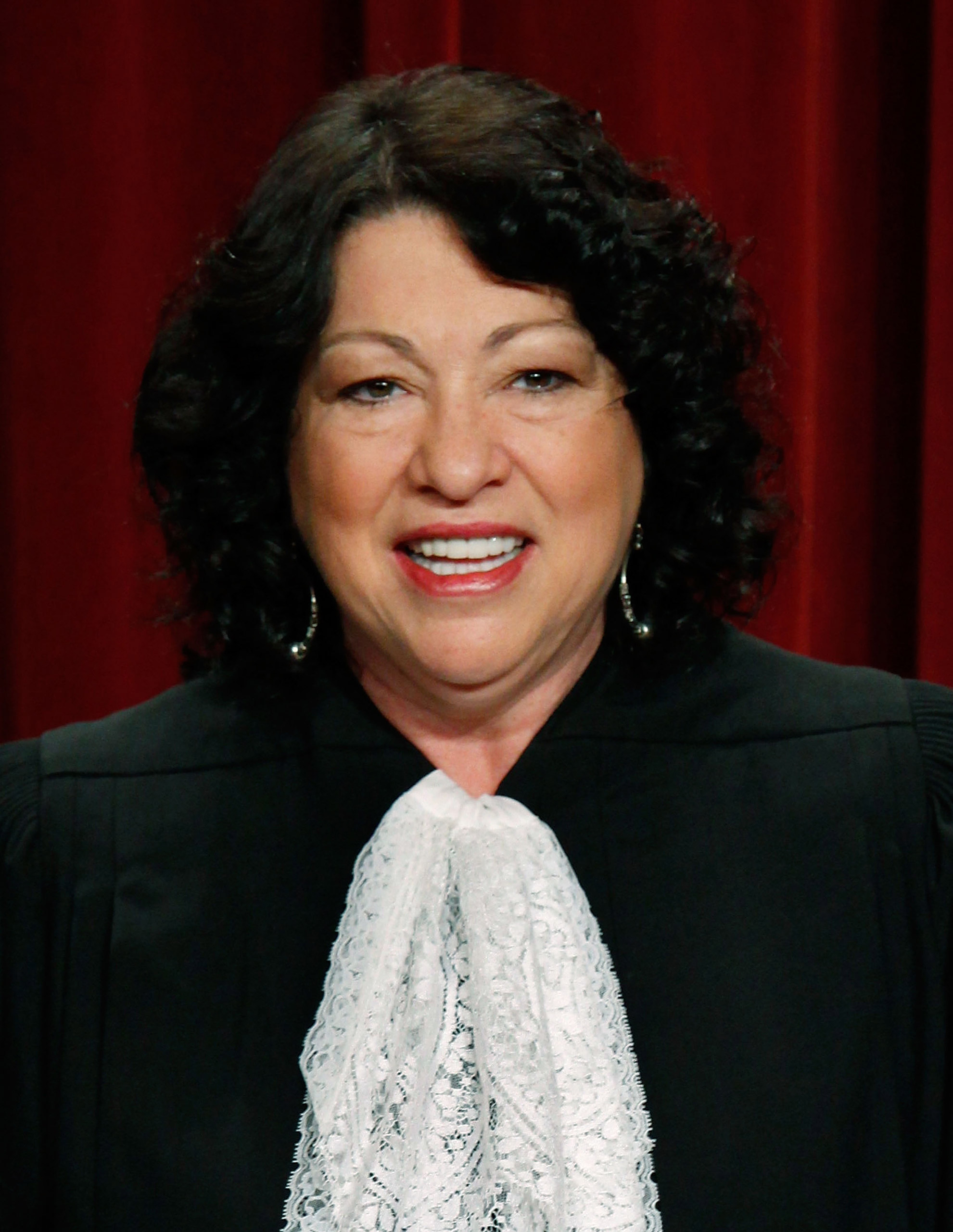
Sotomayor grew up in the Bronx and has said that the TV show Perry Mason was responsible for “igniting the passion” that led her to pursue a legal career. In 1992 she was appointed a federal judge in the Southern District of New York’s U.S. District Court and five years later was nominated to the U.S. Court of Appeals, beginning the role in 1998. In 2009, President Obama nominated her to the Supreme Court, and she became the first Hispanic person to serve as a justice.
Elizabeth Warren (1949- )
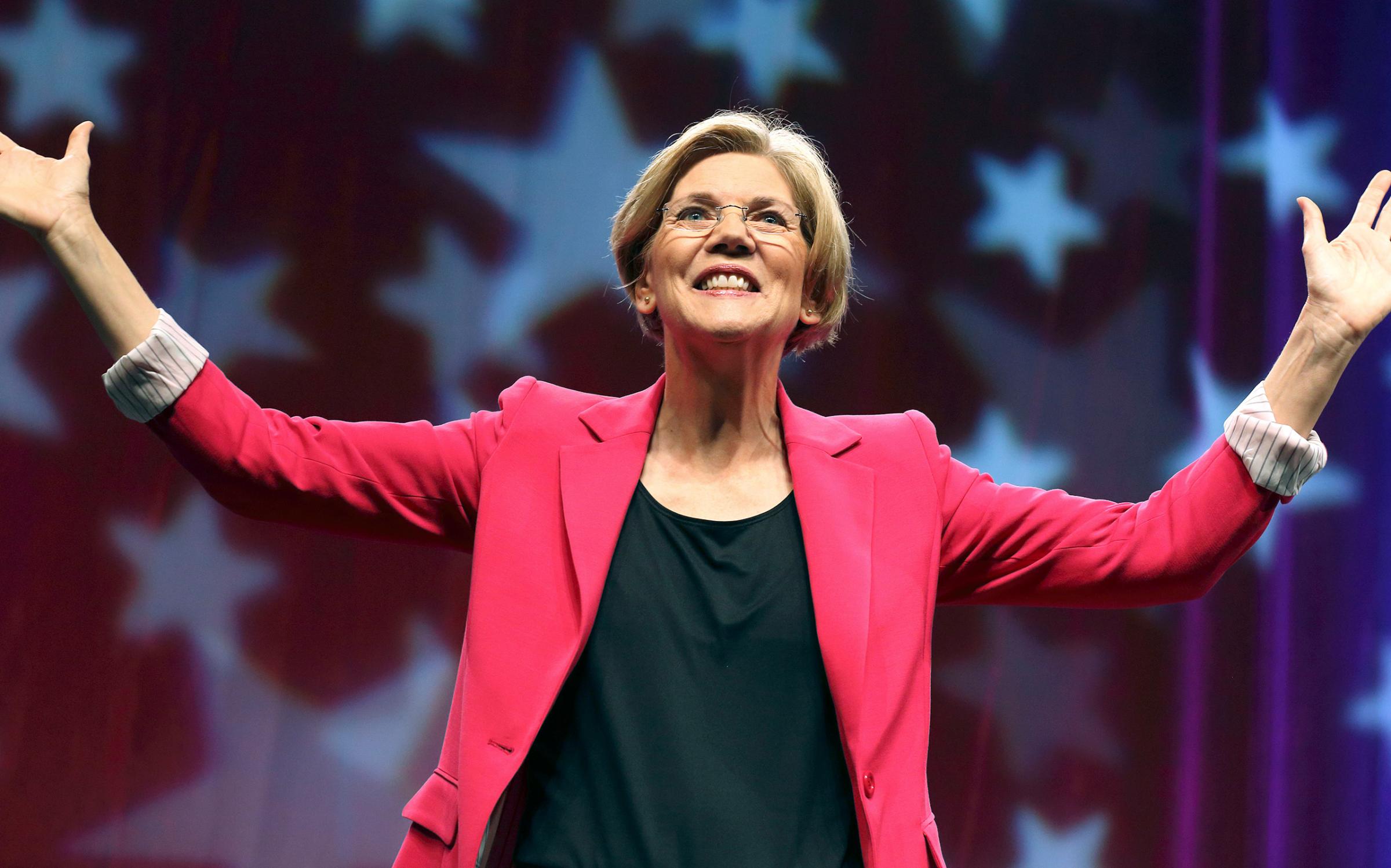
The Democratic Senator from Massachusetts has become perhaps the most high-profile progressive of her party. After presiding over the Troubled Asset Relief Program as chair of the Congressional Oversight Panel following the 2008 economic crisis, Warren beat incumbent Republican Scott Brown to become the first woman to represent Massachusetts in the Senate in 2012. She pushed for the 2011 creation of the Consumer Financial Protection Bureau to protect buyers by monitoring financial sector institutions.
Edith Wilson (1872-1961)
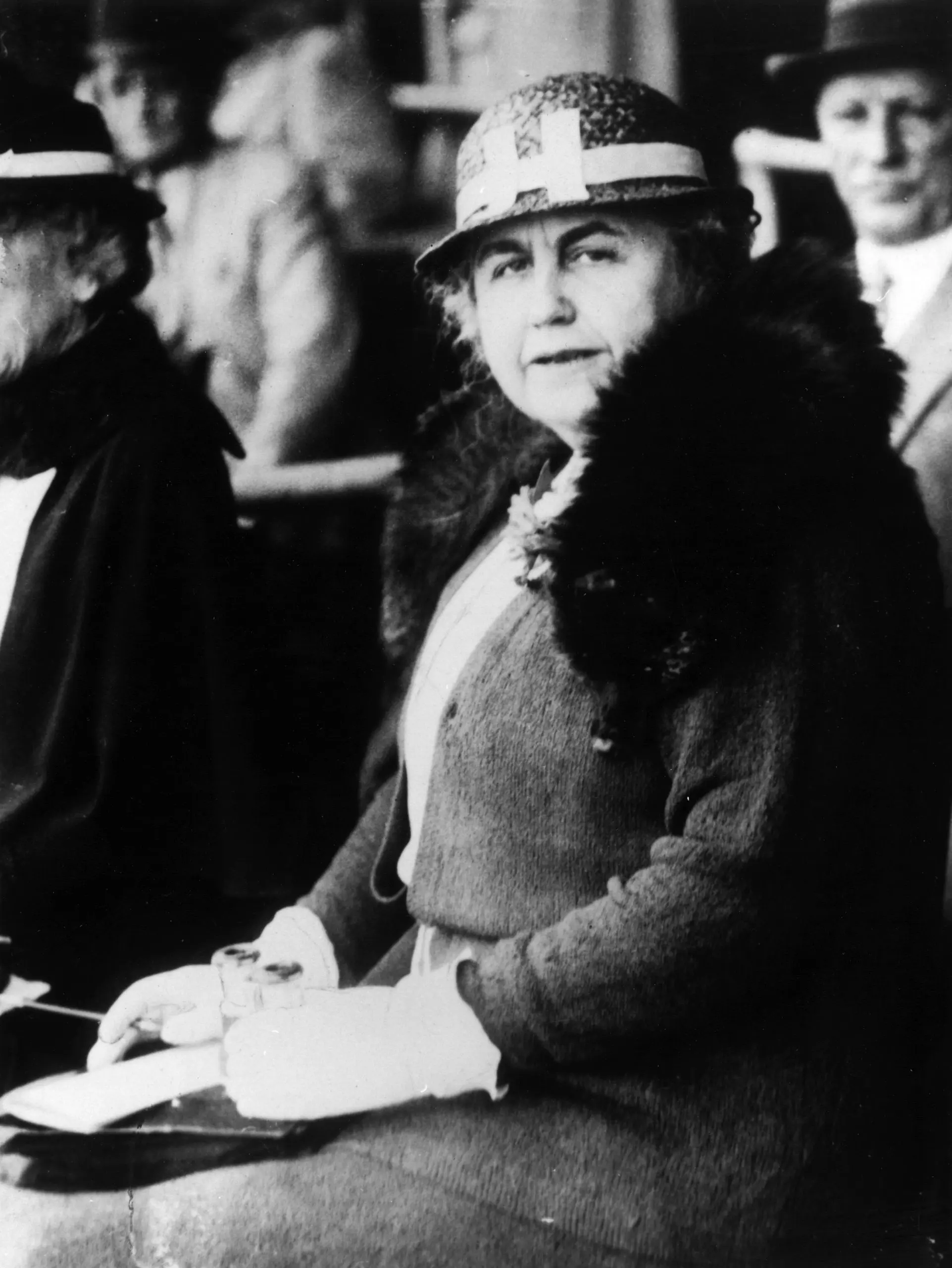
This First Lady of the United States (1915-1921) is often described as the first woman president, based on her power to decide which issues would be brought to President Woodrow Wilson’s attention after he suffered a stroke that left him largely incapacitated in 1919. Among those issues was the League of Nations. Some historians argue that, by refusing to compromise with key U.S. Senators who were opposed to the U.S. joining the pact, she contributed to leaving the world vulnerable to the rise of fascist leaders in the lead-up to World War II.
Victoria Woodhull (1838-1927)
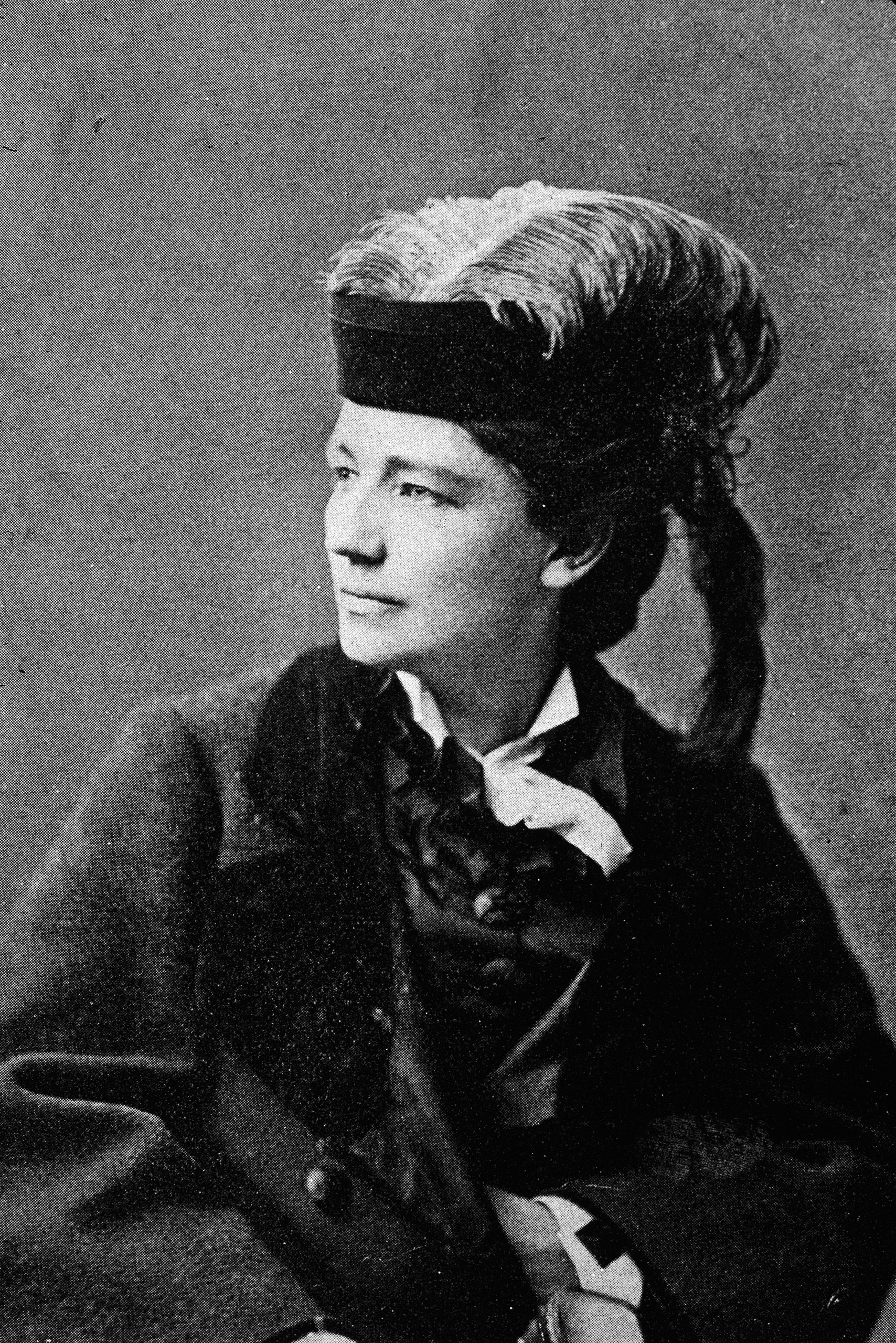
In 1872, Woodhull became the first woman to run for president. Having been, along with her sister, one of the first female stockbrokers, she helped launched a newspaper dedicated to women’s suffrage and reform. In 1871, she argued before the House Judiciary Committee that women were covered by the 14th and 15th Amendments and so already had the right to vote. The Equal Rights Party, an offshoot of the National Woman Suffrage Association, nominated her for president and decided on Frederick Douglass as her running mate, though it’s unclear if he even acknowledged the nomination. She supported rejecting conventional moral standards for men and women, advocating “free love” alongside workers’ rights, healthcare and more. Just days before the election she was arrested on obscenity charges; she eventually moved to England.
More Must-Reads from TIME
- Cybersecurity Experts Are Sounding the Alarm on DOGE
- Meet the 2025 Women of the Year
- The Harsh Truth About Disability Inclusion
- Why Do More Young Adults Have Cancer?
- Colman Domingo Leads With Radical Love
- How to Get Better at Doing Things Alone
- Michelle Zauner Stares Down the Darkness
Write to Julia Zorthian at julia.zorthian@time.com and Olivia B. Waxman at olivia.waxman@time.com